Greenpeace Middle East and North Africa
IMPACT
2021-2023 REPORT
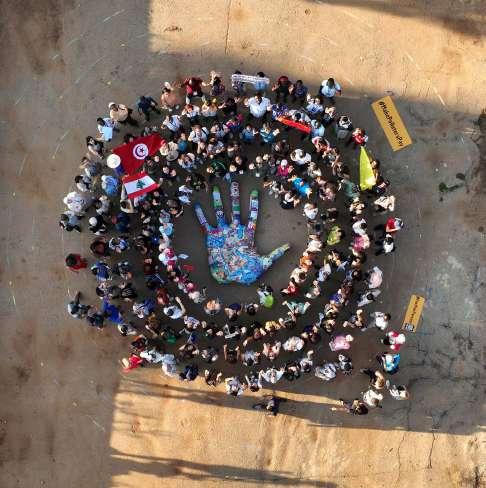
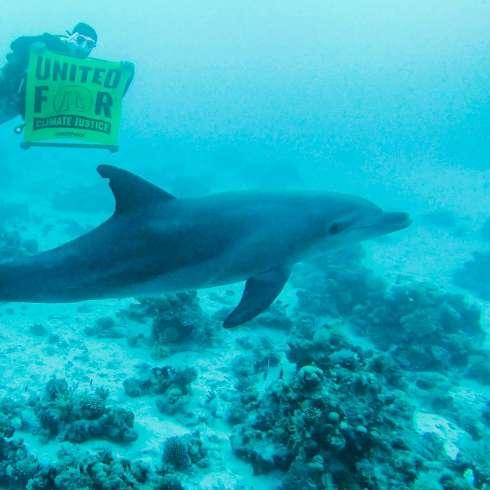

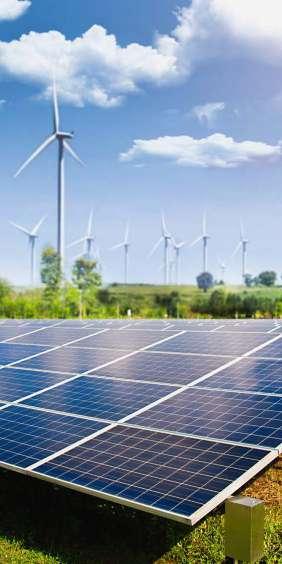
MENA Impact Report
MESSAGE FROM THE EXECUTIVE DIRECTOR
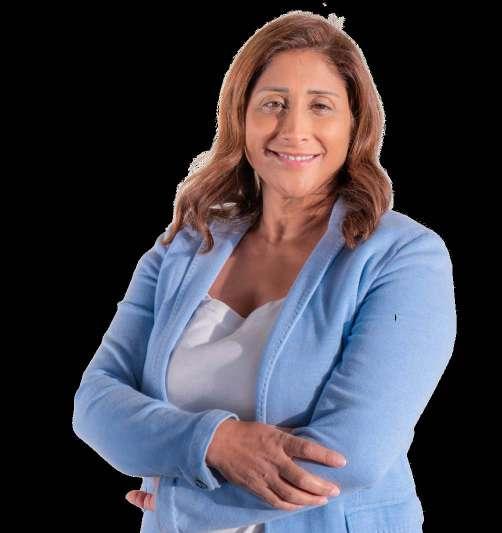
In the face of a global polycrisis, where the stark reality of the climate emergency converges with so many other existential challenges, we find ourselves at a pivotal juncture that demands our collective attention, resilience, and action. When these seemingly insurmountable problems leave so many people feeling overwhelmed, our strength of community is a catalyst for hope and transformative solutions.
This region is our home. Like you, we care deeply about its people, its societies, and the unique and complex climate-and environment-related challenges it faces. We are in this together – no one is immune.
I am proud to share the remarkable journey of Greenpeace MENA, which has experienced unprecedented growth, dynamism, and diversity over the past few years. Our team, now nearly 30 members strong, exemplifies the power of collaboration, gathering individuals from across the region with a variety of backgrounds, skill sets, and geographic perspectives. This commitment to diversity and equity is our strength - it is a true reflection of the range and richness of the cultural tapestry of the Middle East and North Africa, making our collective efforts to protect our environment both robust and effective.
Over these 5 years, Greenpeace MENA has firmly established itself as a significant force in the climate movement, demonstrating effective partnerships with civil society and allies.
Our impact in working to prevent environmental catastrophe and in shaping the climate narrative has been notable, infusing a Global South climate justice perspective and leveraging our political insight into the complexities of the MENA region. Despite our early years and growing resources, this strategic approach has proved instrumental in navigating opportunities offered by key events such as the United Nations Climate Conferences in 2022 and 2023 that were held in Egypt and the UAE (COP27 and COP28), allowing us to contribute meaningfully to the ongoing discourse and to advocate for positive change.
At the core of our mission is the recognition of the vital role of the youth. We are not just investing in the present but laying the foundation for a prosperous future. Greenpeace MENA is dedicated to empowering young minds as agents of change. Events like COP and the Climate Justice Camps have offered an opportunity to embrace a new narrative, envisioning alternative futures that prioritise the stewardship of nature, social justice, and sustainability.
Ultimately, our work is all about people caught in a constant struggle for survival. Our shared experience and expertise as social advocates and environmentalists provide invaluable insight into how the most vulnerable of our people bear the brunt of the climate disaster. Farmers seeing their failing harvests, desert nomads facing disappearing oases, and Ahwari women in the marshlands of Southern Iraq whose livelihoods are devastated by drought all embody the human impact of the climate crisis and pollution.
I extend my deepest gratitude to each one of you for your unwavering support on this extraordinary journey. Whether you are an inspiring thought leader, transforming hearts and minds, or supporting our work with your generosity, your commitment is a pledge to be part of something greater than ourselves. Together, we contribute to building a passionate and diverse team that authentically represents the range and depth of our people.
Thank you for standing with us and being an integral part of Greenpeace MENA's mission.
Ghiwa Nakat Executive Director
BOARD CHAIRPERSON’s NOTE

Dear friends,
I am proud to present Greenpeace MENA’s Annual Report for 2021-2023, in which we provide an overview of our work in addressing the impact of the climate crisis with proactive measures to protect the planet and its inhabitants and bring about a sustainable and just future.
As highlighted in this report, the climate emergency is having a significant effect on regional food, human and social security. It is vital that we continue to taking effective action to end the crisis and limit the rise in global temperature to 1.5°C. We also need to shift and adapt our economies towards a greener future.
I am heartened to see that several countries have already included important climate provisions in their plans, such as the UAE’s Abu Dhabi Vision 2030, Egypt’s Vision 2030, Saudi Arabia’s Vision 2030, and Qatar’s National Vision 2030. This major societal shift to renewable energy, electrification of motorised transport, and sustainable and just urban and rural life can only be achieved by changing our planning perspectives and making a series of essential and critical decisions.
At Greenpeace MENA, we understand the importance of our region becoming a global pioneer in the field of green renewable energy solutions and economies. We must build on the growing awareness of climate change and its devastating consequences on people's lives and communities.
It is important that we take a leading role in facilitating the exchange of knowledge and research between universities, think tanks, and institutions and be active in finding joint regional solutions to the current environmental crisis, particularly in the areas of social welfare and standards of living.
As we move forward, we must take advantage of shifting global economic and geopolitical dynamics as an opportunity to foster joint cooperation and encourage green Arab entrepreneurship and social innovation to ensure our prosperity.
In conclusion, I would like to express my gratitude to the Greenpeace MENA team for their tireless efforts and dedication to the cause. I am proud to be part of such a visionary endeavour at this historically significant time. Together, we can make a difference, protect our planet, and ensure that future generations have a chance to thrive on a peaceful and harmonious planet.
Sincerely,
Mohamed ElKhateeb Chair of the Greenpeace MENA Supervisory Board

GREENPEACE MENA THE STORY SO FAR

Guided by a vision for a greener and more peaceful world, Greenpeace MENA was established in 2018 and is one of the newest organisations in the international Greenpeace network that consists of 27 independent national and regional organisations in over 55 countries. With almost 30 staff across the region, we offer solutions to the major environmental problems in the Middle East and North African region - especially the climate emergency.
Greenpeace MENA ABOUT US
OUR VISION
Together we will conserve the diversity and richness of our region’s natural treasures and communities so that our children thrive with dignity in a peaceful, sustainable, and just future.
At Greenpeace MENA, we work creatively and collaboratively to reduce the environmental, economic, and social impacts of climate disasters and push local and innovative solutions empowering our communities to flourish and live in harmony with their environment.
We are a financially independent organisation relying on donations from generous individuals to carry out our work. This means we do not accept funding from governments, corporations or political parties.
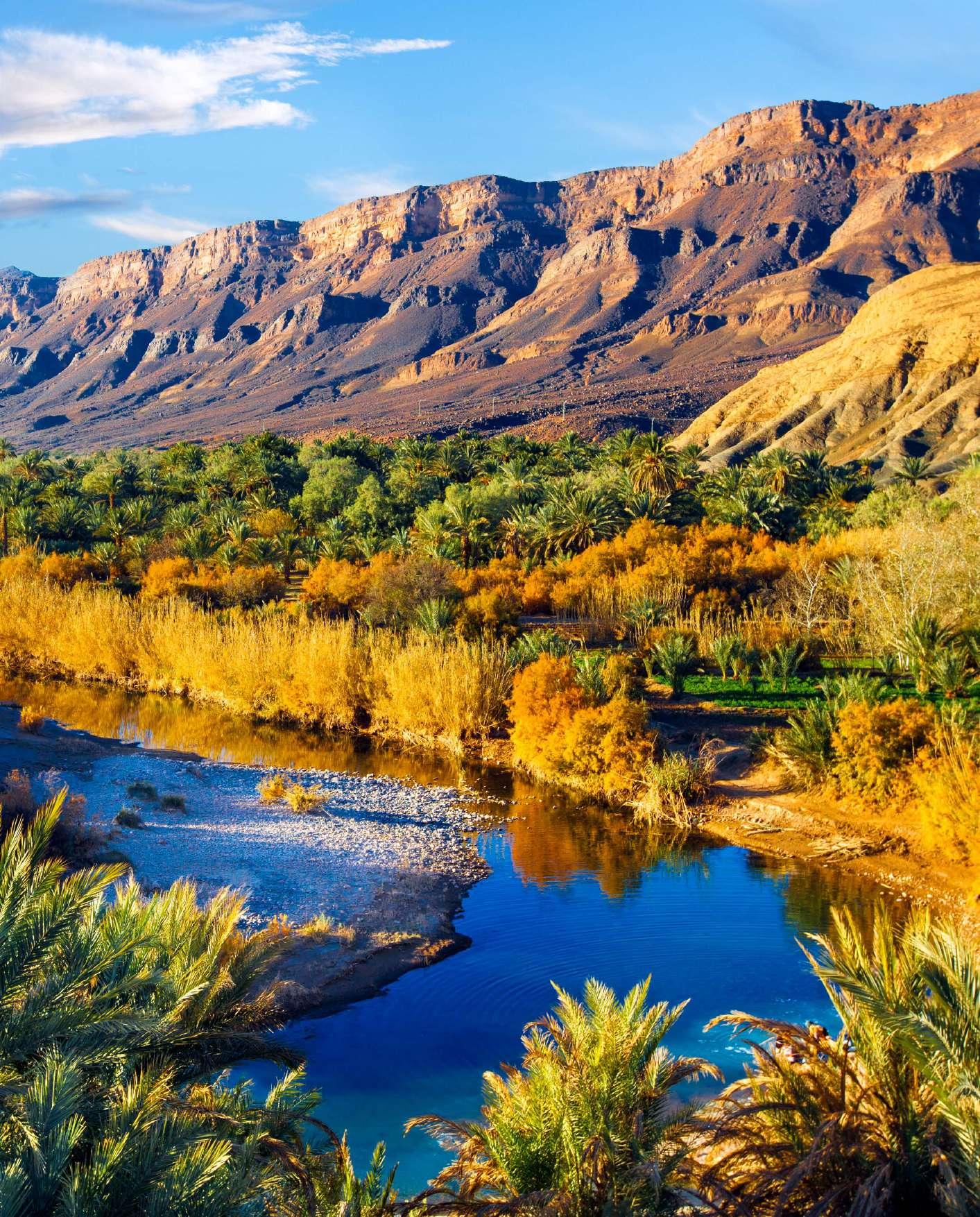
OUR VALUES

We strive for justice in a world where diversity, inclusivity, and equity are woven into the very fabric of society.

We commit to upholding trust, independence, transparency, and accountability in every aspect of our work and in all our interactions with our partners.

JUSTICE COURAGE
We take a stand when others are unable to, and we do it with conviction and resilience, always speaking the truth.

SOLUTION ORIENTED INTEGRITY
EMPOWERMENT
Through empowerment, we nurture the agility and collaboration essential for making a meaningful impact and effecting positive change.

We believe in the power of innovation to drive impactful solutions for a greener and more sustainable tomorrow.
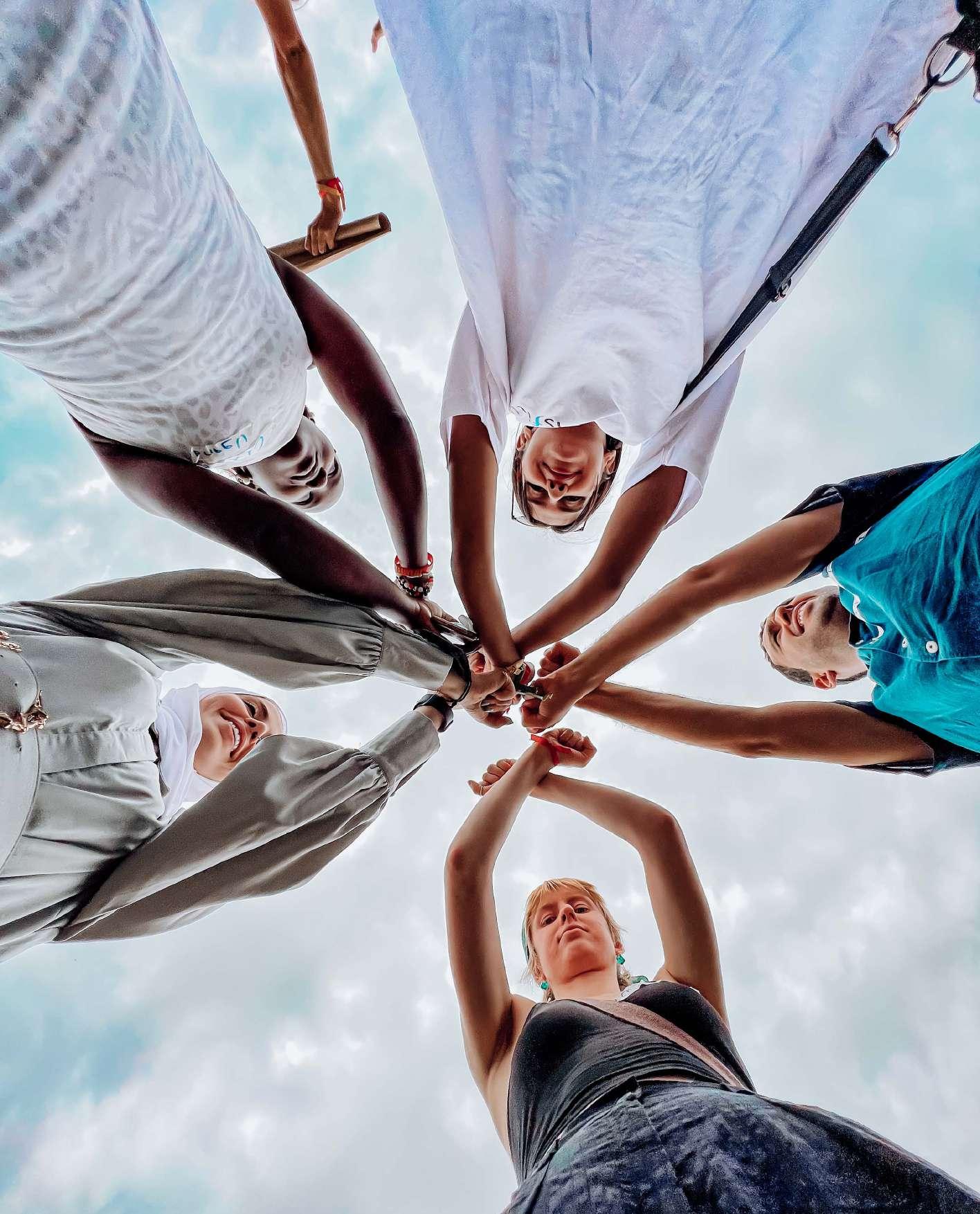
CAMPAIGNS
Introduction
Amid the rising temperatures, wildfires, and floods we are experiencing, climate justice is at the heart of our current campaigns. Armed with knowledge, we work to mobilise our allies and the public to defend the natural world and take action on the climate emergency and its environmental, economic, and social impacts, promoting innovative locally developed solutions relevant to our region. We advocate for a just transition to an alternative future that prioritises the well-being of our planet and its communities above all else through a paradigm shift towards true sustainability.
Greenpeace MENA harnesses the power of digital campaigning and strategic partnerships with like-minded organisations. Collaborating with thought leaders and influencers is crucial as we work to bring the urgency of the climate crisis to the forefront of public consciousness.
Our proactive engagement extends to Arab-speaking countries and their diaspora, facilitated by a robust online presence. With a deliberate emphasis on platforms such as Instagram, Facebook and X, we have cultivated an active audience of more than 4 million followers. As we expand our reach, we fortify the collective strength of people power, amplifying the impact of our campaigns to create lasting change.

Why We Campaign
Greenpeace MENA's campaign work is driven by the belief that change is not only possible but essential for a sustainable and just future. We emphasise the strength of collective action. Empowering individuals is at the core of our mission, inspiring those who may feel that change is beyond their reach.
Our campaigning is rooted in mobilising the public to take action on the climate emergency. We actively work to preserve the diversity and stability of the natural treasures and communities in the Middle East and North Africa. We strive to safeguard Earth's capacity to support life by challenging the influence that major polluters and corporate interests have on governments. Our advocacy focuses on opposing outdated destructive practices while promoting sustainable approaches aligned with nature.
Our campaigns are strategically focused on areas where we have the expertise, experience, and potential to achieve the greatest impact. Grounded in the latest scientific research, our work reflects our commitment as a science-based organisation. We employ a robust methodology to produce accurate, reliable, and evidence-based reports and policy guidelines, often collaborating with specialised external partners.
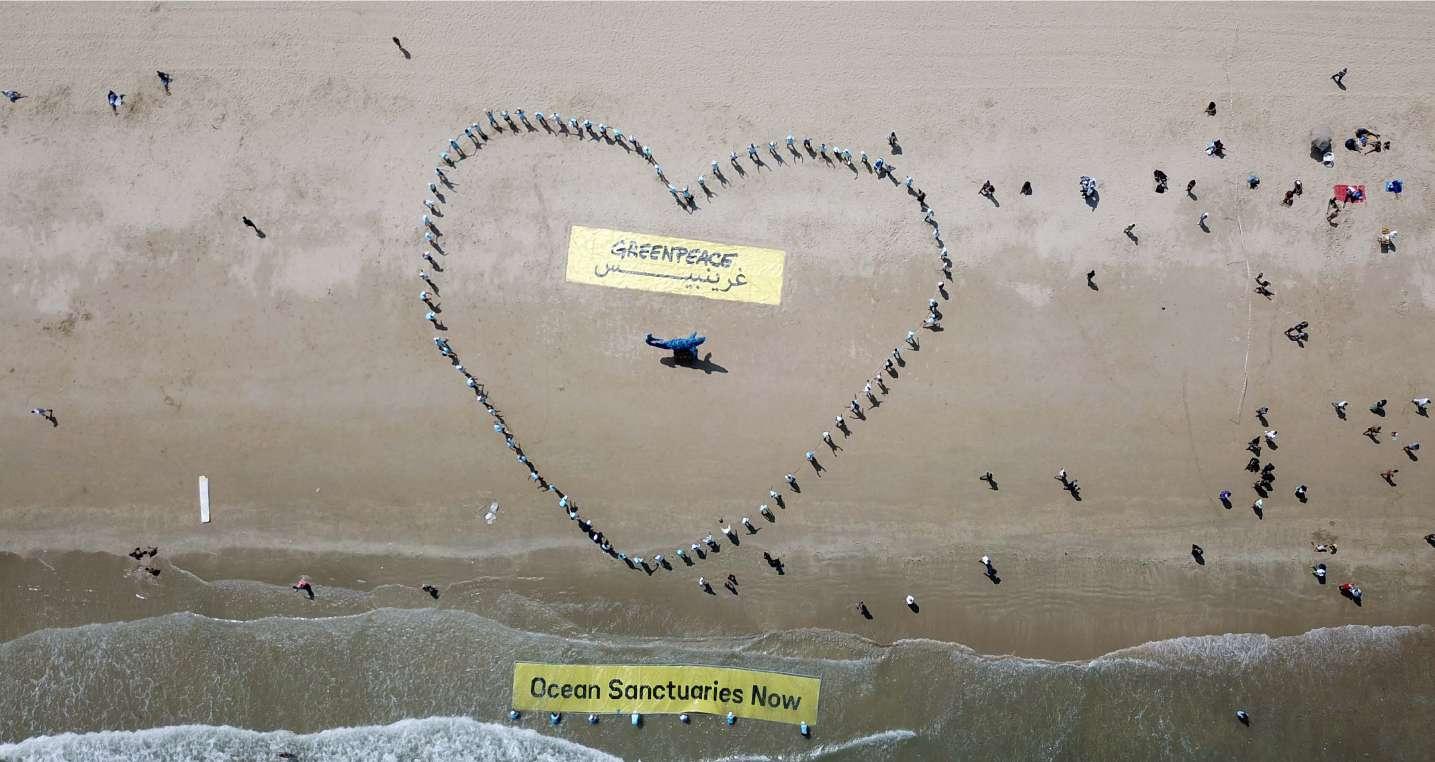
Who We Campaign For
At Greenpeace MENA, as people living in the region, we understand on a deeply personal level the struggles, potential, and unique circumstances of the people who call this region their home.
The MENA region is the most water-scarce globally and faces unique and severe impacts of climate change, warming nearly twice as fast as the global average and with unprecedented multi-year droughts. In response to these threats, we must undergo a transformational change to ensure justice, particularly for vulnerable communities.
Climate disasters are a daily reality for our most vulnerable communities. Those with the least resources to protect themselves face homes reduced to ashes, shattered lives, and obliterated livelihoods. They are immersed in a daily struggle for survival, and every passing day without real change becomes a sentence of hardship or even death for these communities.

Campaigning for Real Change
We support people affected by the climate disaster to amplify their calls for essential rights and wellbeing, addressing challenges such as water and food security with innovative solutions.
We are guided by a strategic campaign methodology encompassing research, analysis, mobilisation, advocacy and communication, and we work closely with our partners to identify pressing regional issues and develop campaigns resonating with the communities we serve.
We understand the transformative power of data and scientific facts, using knowledge sharing as a strong tool in the climate justice endeavour. We offer independent, deep, and wide-ranging data to corroborate and lend credibility to research.
Our unwavering commitment to advocacy and campaign work aims for real and impactful solutions on the ground, contributing to the realisation of our vision for a better, sustainable world.
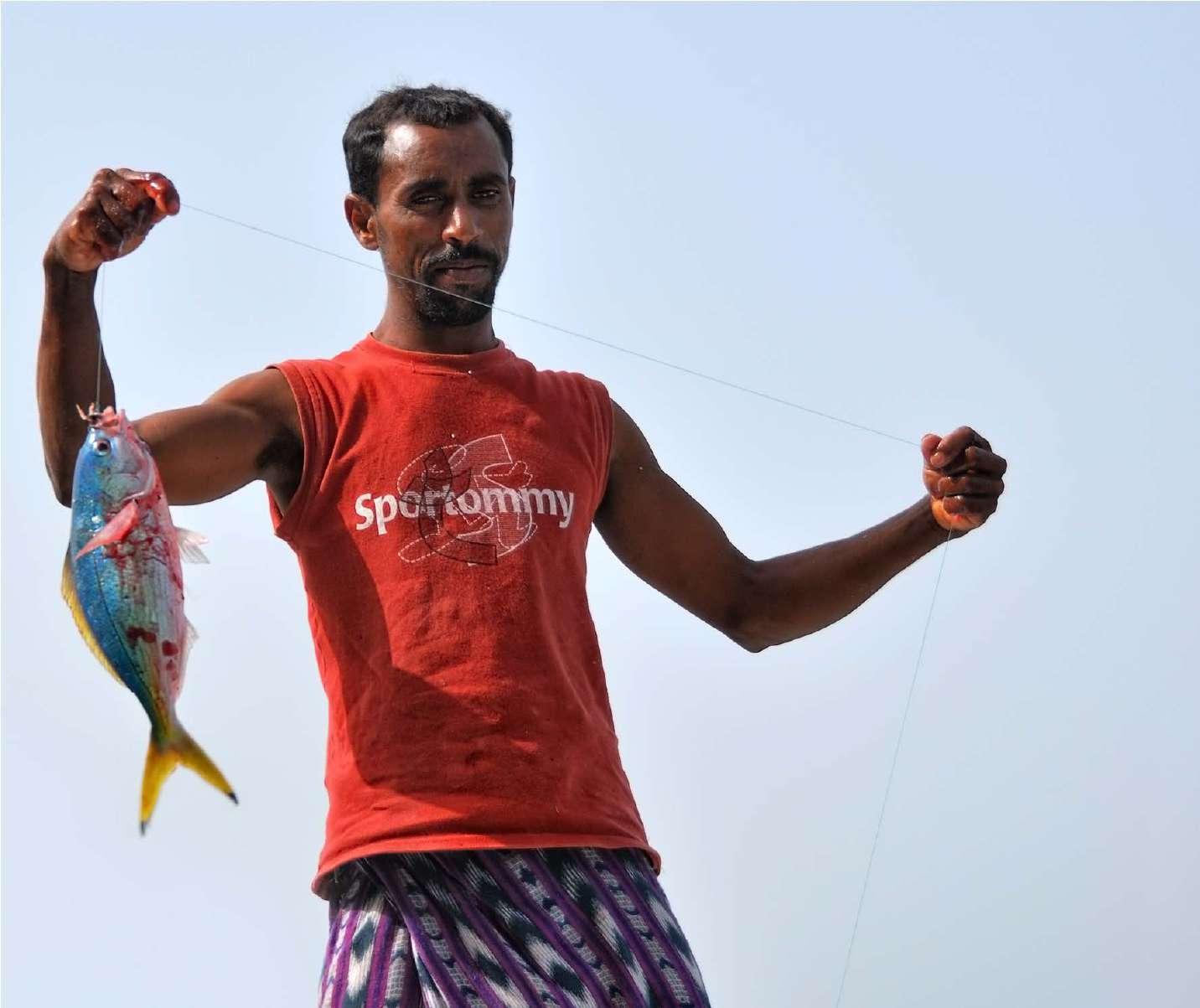
.14 MILLION 1 barrels of oil
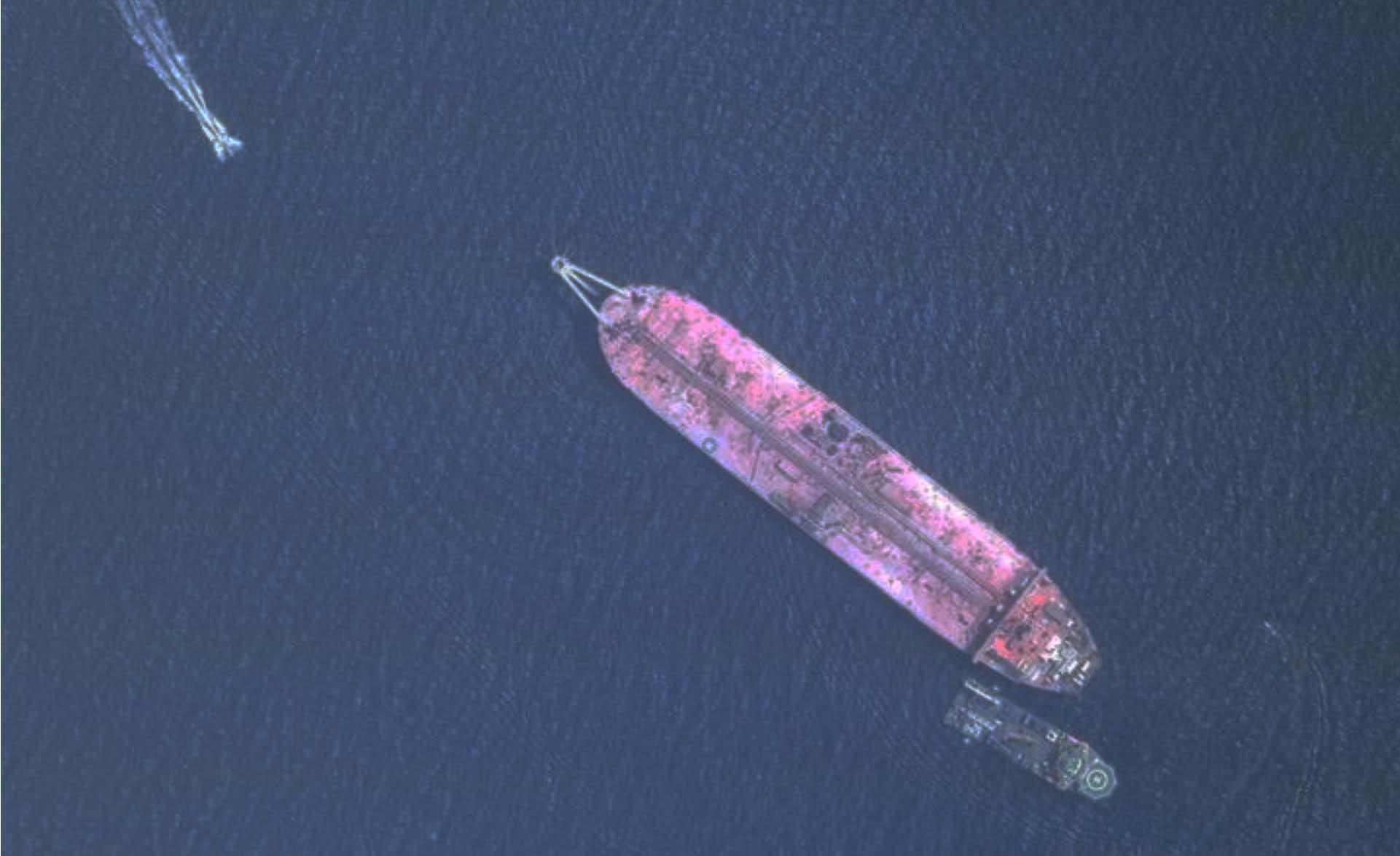
Ticking time bomb9 years decaying in the Red Sea
Cost of preventing catastrophe US$129 MILLION
In a resounding victory against impending environmental disaster, Greenpeace MENA showed the power of campaigning in coalition with local civil society allies when it scored a victory in its push for a salvage operation for the FSO Safer. This led to the successful removal of over a million barrels of oil from the decaying FSO Safer tanker which for years had posed a dangerous threat to the unique biodiversity of marine life in the Red Sea and the livelihoods of local communities. The United Nations publicly acknowledged Greenpeace as one of its key allies in working to prevent a humanitarian, environmental, and economic catastrophe from a potential massive oil spill.

Joining together in action
Fuelled by our deep-rooted commitment to preserving the delicate balance of our planet's ecosystems, Greenpeace MENA joined with local allies in a concerted call on the international community to take action and fund a salvage plan - and this is where we were successful. We published a report in January 2021 with Greenpeace Research Laboratories that detailed the environmental and social impacts of a potential oil spill from the tanker, highlighting the need for urgent action to build pressure on all parties to agree on a way forward. Shortly after the release of this report, the parties involved in the negotiations finally agreed in principle on a rescue plan after a deadlock that had lasted for years.
As the FSO Safer continued to deteriorate in 2022, Greenpeace MENA worked with partners to lobby the United Nations to take action and we pushed for funding to support emergency repairs to the tanker.
We addressed a letter to the Arab League in June 2022 calling for an urgent meeting of Arab foreign ministers to discuss funding for the proposed UN plan to rescue FSO Safer.
Ticking time bomb
The FSO Safer is an abandoned oil tanker that has been decaying and rusting in the Red Sea off the coast of Yemen since the start of the country’s civil war in 2015 - posing an ever-increasing threat due to its cargo of 1.1 million barrels of crude oil. In the 1980s the tanker was converted into a stationary storage vessel and moored 7 kilometers off the coast under the ownership of the Yemeni government. With the eruption of the civil war, an argument over its ownership left FSO Safer with little or no maintenance and exposed to humidity and corrosion that put it at risk of exploding and causing an environmental disaster.
Holding Big Oil to Account
In September 2022, Greenpeace published an investigative report titled B“Big Oil Shadow Looming over Yemen: The Fossil Fuel Giants Behind FSO Safer”. The report revealed which of the large multinational oil companies were the likely owners of the oil on board to support our arguments, call upon them to fund the salvage operation, and hold them accountable for any potential disasters. Despite reaping staggering profits, these corporations failed to demonstrate any sense of responsibility for the potential ecological disasters their operations could have unleashed.
We also produced a range of safety guidance materials, including leaflets and posters providing advice on health impacts for potentially impacted communities as well as safety guidelines for response teams.

Hope Emerges
Our continued calls in unison with other campaigners eventually led to a pledging conference organised by the UN that secured the necessary funds needed to undertake the emergency operation to remove the oil from the FSO Safer.
Eventually, in March 2023, the United Nations Development Programme (UNDP) announced that it had purchased another tanker vessel for the storage of the oil so that it could begin the first phase of the operation at a total estimated cost of US$129 million. The operation to remove the oil began in July 2023 and was completed the following month on August 11, 2023, finally mitigating the risk of a devastating oil spill.
We continue to monitor
Looking ahead, Greenpeace MENA will continue to monitor the situation for risks posed by the abandoned tanker. The ship still needs to be towed away and scrapped. Further work on salvaging the hulk has been suspended as of January 2024 due to Houthi attacks on shipping in the Red Sea. Greenpeace continues to call on the oil giants to be held accountable for their actions and to urgently contribute to funding future stages of environmental conservation.
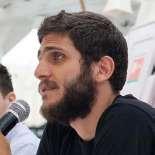
Julien Jreissati
Programme Director at Greenpeace MENA
This successful campaign serves as a testament to the power of sustained and collective action and the impact that environmental advocacy can have in preventing ecological and humanitarian disasters. As we celebrate this achievement, Greenpeace MENA remains steadfast in its commitment to holding industries accountable, demanding responsible practices, and forging a sustainable path towards a greener future for our planet.


Embarking on the COP Journey
Greenpeace has always regarded the Conference of the Parties (COP) as a vitally important global platform where decisions on climate action shape the future of our planet. COP27 and COP28 carried great significance for Greenpeace MENA and the region, taking place as they did in Egypt and the UAE and bringing climate discussions back into the Global South. These gatherings presented an unparalleled opportunity to spotlight the vulnerabilities of the Middle East and North Africa (MENA) and enabled us to advocate for climate justice for its people.
At these global conferences, countries gather to negotiate and devise strategies and decisions that have far-reaching impacts on humanity. Dubai was the most important COP since the Paris Agreement in 2015 and took place at a time of record temperatures, climate disasters, emissions, and increasing fossil fuel profits.
Championing the Global South
At COP27 and COP28, Greenpeace MENA was an important part of a powerful and broader Greenpeace delegation committed to global change and climate justice. We ensured a much-needed southern perspective to highlight the urgency for climate action. Our focus was clear – to hold wealthier nations accountable for their contributions to climate change and make the historical polluters pay to fix the harm they have caused by establishing a Loss and Damage Finance Fund to assist poorer communities affected by the impact. To do this we made sure that the voices of the most vulnerable communities in the Global South, particularly in the MENA region, were heard and prioritised.
Without the participation of youth and civil society organisations, there would be no pressure for the needed demands to be included in the final outcomes at these climate conferences. Both groups play key roles in preventing greenwashing, advocating for genuine solutions, and holding governments and negotiators accountable for a climate-just world.
A New Dawn For Climate Justice
Greenpeace MENA's presence at successive UN Climate Conferences has reflected its a commitment to climate justice, influencing policies, increasing awareness, and garnering support for vulnerable communities. More than 30 years of campaigning managed to finally put climate justice onto the COP agenda in the form of the Loss and Damage Fund which recognised the impact of climate disaster on vulnerable frontline communities. This offers hope that we might eventually be able to hold rich countries and big polluters to account and get compensation for poorer countries that currently foot the emissions bill in the form of the climate devastation they suffer.

Strategic Diplomacy
Our strong political understanding of the MENA region allowed us to effectively navigate some of the diplomatic challenges of COP28. Our goal was to get the Arab negotiating team to act faster on climate change issues. We made sure this urgent message was heard loud and clear in the negotiation rooms.
Milestones at COP28
In concert with other civil society organisations, we scored significant achievements including the establishment of the Loss and Damage Finance Fund, which commenced with initial pledges of just above $700 million - a drop in the ocean but a mark of commitment to support vulnerable communities. The summit ended with the historic first acknowledgment of the need for a phasedown of fossil fuels emissions this decade and a phaseout by 2050, with many world leaders responding positively to the ever-growing demands for an end to the era of fossil fuels and the transition to renewable energies.
Youth Champions:
In line with our belief in the transformative power of the youth and our priority to raise the voices of the most vulnerable communities impacted by climate disaster, we brought youth delegates from Iraq, Morocco, Tunisia, Jordan, Lebanon, the Philippines, and Kenya to showcase the vulnerability of the MENA region and the wider Global South, emphasising the need for urgent action. We prepared the youth delegates through training workshops to equip them with all the political and media knowledge they needed to ensure their powerful and effective participation at the summit.
Throughout the two weeks of COP our youth delegates were incredibly activeparticipating in interviews and countless panels, engaging and collaborating with the wider Greenpeace delegation, following the negotiations, and conducting active lobbying work. We supported them in creating multimedia content that travelled far and wide through their own channels and Greenpeace’s.
These young climate champions were determined to use COP as a platform to hold governments and major polluters accountable for the damage they have caused. At the end of both COP27 and COP28, the youth delegation joined with Greenpeace MENA to present the only Arabic language press conference at either summit, with youth delegates delivering powerful speeches to the journalists present. They arrived at COP28 full of hope and left with an even stronger conviction that a better, more sustainable world is within reach. (Read more about young climate champions on page 29)
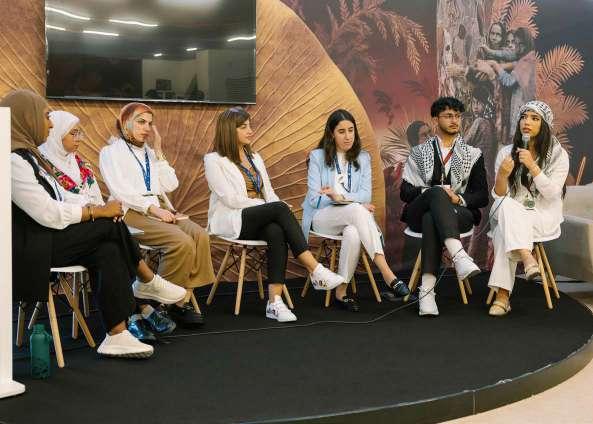
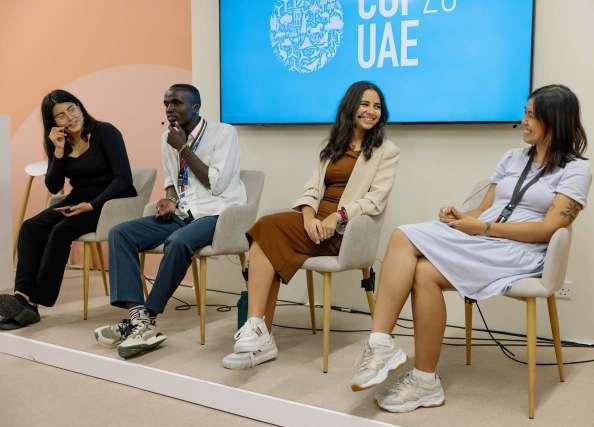
The Ummah for Earth allies were heavily present in the first-ever Faith Pavilion at COP28, co-hosting a total of 7 side events this year, creating a space to strengthen faith actors’ inclusion in global climate conversations and action, and highlight the work of the alliance. Ummah for Earth delivered demands to faith leaders and announced plans for next year’s Islamic Finance campaign. (Read more on page 20)
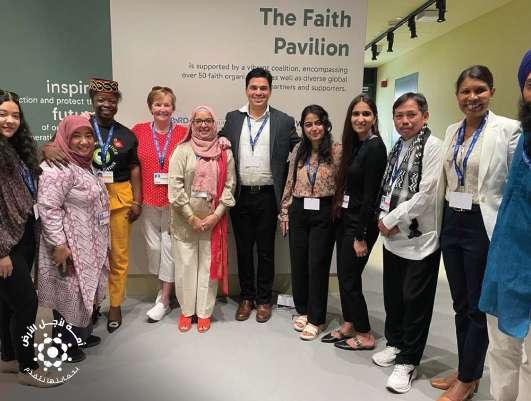

Alternative Future Initiatives:
We organised a "Visions of the Future" art exhibition at the COP venue which displayed young people’s visions for the UAE's energy future through unique artworks using Artificial Intelligence and photography. In collaboration with Abu Dhabi University, we organised an award ceremony for winning academic papers on what the energy transition could mean for the UAE's energy sector. (Read more on page 26)
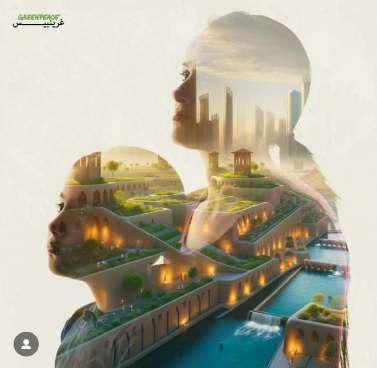
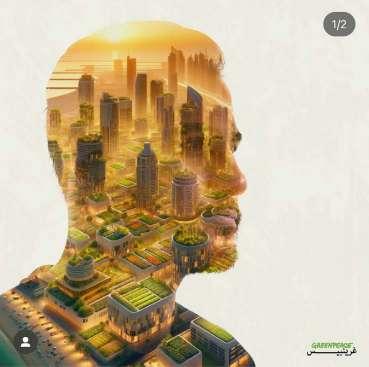

‘Polluters Pay' Rap Video:
Our Make Polluters Pay campaign work included the launch of a youth-focused music video titled ‘Polluters Pay’ with Sudanese artist and filmmaker, Amjad AlNour, who used his typically creative approach to language and music to depict the greed of international oil companies based in the Global North at the expense of the people, especially those of the Global South. The video was viewed by more than 11 million people across our platforms.
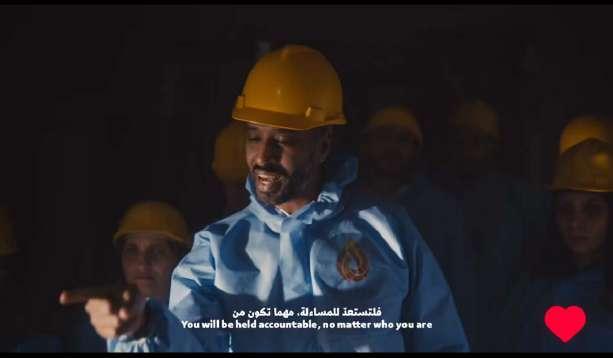

Gaza:
On another note, Gaza and Palestine were strongly present during this COP. Many from the climate movement were supportive of the Palestinian cause and there were strong demands across the movement for a ceasefire. We also contributed with a photo op demanding a ceasefire.

Reflecting on COP28
COP28 marked a significant chapter in Greenpeace MENA’s pursuit of climate justice. The achievements attained through dedicated advocacy and strategic campaigning underscored our commitment to global change. Reflecting on progress, it is clear that our mission for real climate action is far from complete. Challenges persist, notably the crucial role that developed nations must play both in sustaining the Loss and Damage Fund and also in leading and funding the transition to renewable energy.
Shady Khalil

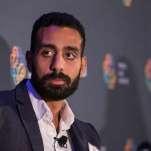
Campaigns Lead at Greenpeace MENA
Facing the future, Greenpeace MENA stands firm in its commitment to a world powered by renewable energy, anchored in justice, equity, and a careful and responsible approach to addressing climate-related issues. Our journey continues, driven by the belief that together, we can forge a sustainable and just future. The call for genuine climate action echoes louder than ever, and with collective effort, we strive towards a world where the transition to renewable energy is not just a necessity but a shared commitment to safeguarding our planet and its inhabitants.

26 MEMBER ORGANISATIONS
8 INDIVIDUAL ALLIES
180,000 PLEDGE SIGNATURES
180 STORIES ON “Ummah Stories.”
The Ummah for Earth Alliance was set up in 2020 by Greenpeace MENA in cooperation with Global One, Islamic Relief Worldwide, IFEES Eco-Islam, and Greenpeace Southeast Asia as a response to there being too few Muslim voices in the global climate conversation. The alliance has been an opportunity to help Muslim communities in the region and worldwide elevate their voices and create a better, greener reality. Just like the rest of humanity, Muslims face complex environmental crises, and Islamic teachings, culture, and faith can guide, unify, and motivate many of them towards finding climate solutions.
Religion is widely regarded as a primary identifier in MENA societies and the region’s Muslim majority population. By tapping into the intersection of Islam, climate change, and the strong value of shared responsibility to protect the planet and the Ummah, Greenpeace has worked to grow the alliance to motivate more than 250,000 young Muslims to take climate action and share their voices and stories with the global climate movement.
Over the past 3 years, the Ummah for Earth Alliance has grown to 26 member organisations and 8 individual allies from across the MENA region, the UK, USA, Canada, Germany, Indonesia, Malaysia, Kenya, Pakistan, and Nigeria together with 180,000 pledge signatures and 180 stories on “Ummah Stories.”

ADVOCACY FOR POLICY CHANGE
Fatwa:
https://ummah4earth.org/en/about-ummah-for-earth/
Ummah for Earth Alliance, together with the Manka Association and EcoNusa, collaborated with the Indonesian Ulema Council’s (MUI) Institute for the Development of the Environment and Natural Resources (LPLH SDA) in 2023 to submit a fatwa on climate change to the MUI. In December 2023, the Indonesian Ulema Council issued the fatwa on Global Climate Change, a crucial step towards merging Islamic principles with environmental stewardship. The fatwa presents several recommendations as preventive measures to address the climate crisis, including contributing to climate change mitigation and adaptation, reducing the carbon footprint of basic needs, and carrying out a just energy transition.



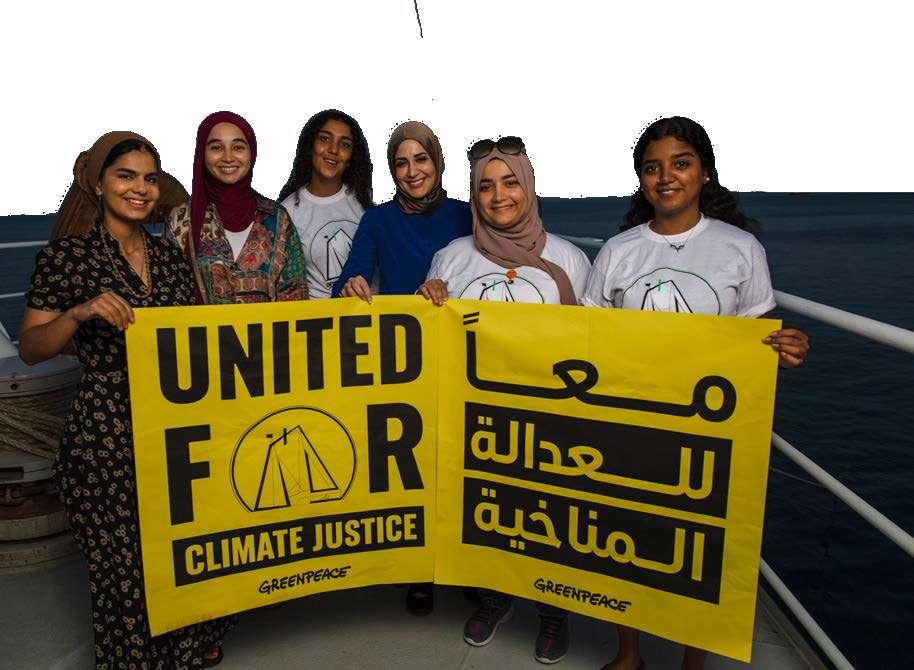
The Faith Pavilion:
COP28 proactively opened its doors to the active participation of faith groups with the first-ever Faith Pavilion at COP. The Ummah for Earth Alliance organised 5 events inside the Faith Pavilion with another two side events in the Canadian pavilion and the Saudi Green Building pavilion at the COP28 venue. This made it easier for the alliance to connect with faith leaders and deliver their demands which were distributed in both English and Arabic.


The United for Climate Justice Ship Tour:
Ummah for Earth led the United for Climate Justice Ship Tour, putting the alliance and its audiences at the centre stage of climate action ahead of COP27.

GREEN MOSQUE INITIATIVE:
In 2021, the alliance launched the Green Mosque Initiative report during COP26 in Glasgow to highlight the role of mosques and the Muslim community in promoting sustainable living and addressing climate change. It took 10 mosques as case studies and showed the importance of solarising them at the environmental, social and financial levels This included the installation of solar panels on Glasgow’s central mosque which served as a powerful symbol of the potential for Muslims to contribute to a more sustainable future. More than 700 participants signed up to support the Green Mosque Initiative, and the alliance engaged the media and community leaders to raise awareness about the importance of climate action in the Muslim community.
Ummah for Earth participated in 10 side events and had a strong message in the climate justice march where allies gathered and held a banner that read ‘Muslims coming together to have an extraordinary impact’.
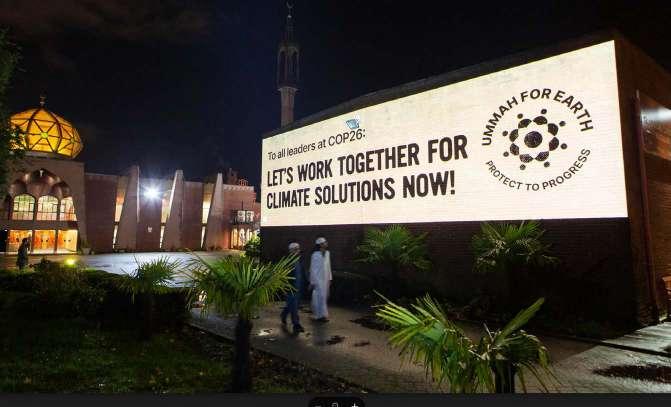
EDUCATION AND AWARENESS
Story Map:
In 2021, the alliance launched a story map titled “ Ummah Stories'' as a tool to raise young voices across the Muslim world and invite them to share the stories vulnerability, and action or pieces of art. In the first month, more than 100 were collected. The Story Map showcases the diversity and the connections between the Ummah as an inspiration, turning the many voices into a powerful narrative. The platform is still available, with stories still being received from different parts of the world.

Green Ramadan and Hajj Campaigns:
In 2021, the alliance developed the Green Hajj & Umrah Guide together with a mobile app to promote environmentally responsible practices during the Hajj pilgrimage and beyond. The guide was translated into Arabic, Indonesian, and Malay.
During Ramadan 2021 and 2022, the alliance focused on collective action and impact through gamification, mobilising young urban Muslims around sustainable worship practices.

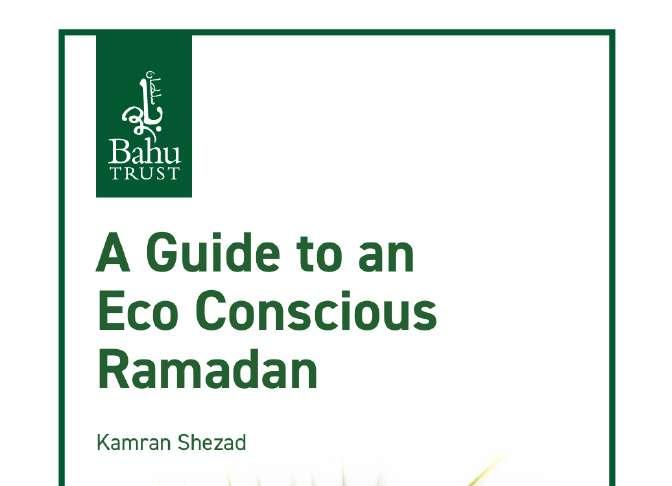
In 2023, the alliance translated and disseminated A Guide to an Eco-conscious Ramadan developed by Kamran Shezad to connect and inspire Muslims to worship sustainably during the holy month, using Ramadan as a catalyst for a more eco-conscious life.
The Green Initiatives Training programme:
This developed the capacity of local groups to implement community-level sustainability solutions as part of Ummah for Earth’s vision to inspire and motivate positive climate action. The training was given to more than 100 individuals across the MENA region.
This success allowed Ummah for Earth to catalyse a Muslim climate movement, elevate their voices and make sure they are represented and heard in the global climate movement and conferences.
The Last Generation published in 2022: This book, written by Ummah for Earth ally Dr. Fachruddin M. Mangunjaya, tackles environmentalism and climate change from the Islamic values perspective. It shows the role of about 1.8 billion Muslims in finding solutions to the impact of global climate change. In its own unique way, The Last Generation represents a combination of practical environmental knowledge and Islamic scientific theory. It also tackles the issue of harmony and the changing eco-balance on this planet, the role of humans in causing this imbalance, and the necessity of restoring it.

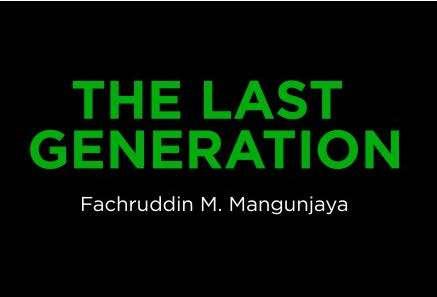
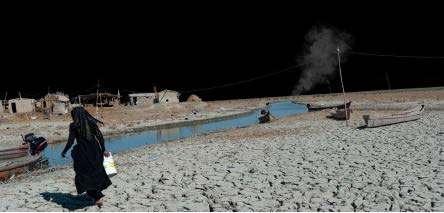
COMMUNITY-LED INITIATIVES
Climate marches in Jordan:
Ummah for Earth organised two climate marches in Jordan, led by our ally Green Generation Foundation. Both marches called for climate justice, and one of them took place in parallel with the United for Climate Justice Ship Tour.

Reforestation Initiative:
In December 2023, Ummah for Earth supported our ally Green Generation Foundation to implement a community initiative to protect the forests in Dibbeen Forest Reserve. The planting activity took place after exploring various approaches to protect the trees, and after a discussion with scientists and communities on green Islamic practices, environmental education and forest management.
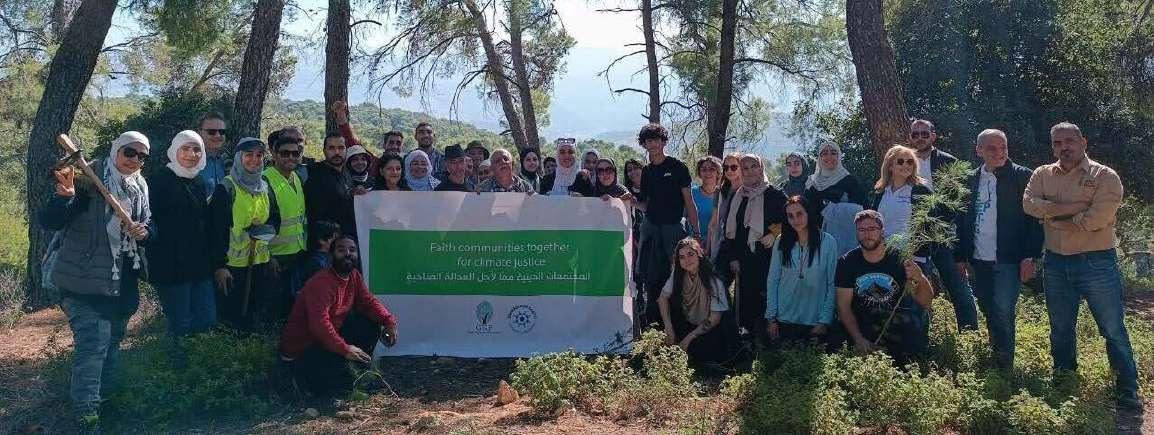
Solarising:
Ummah For Earth solarised water pumps and a boarding school in Indonesia.
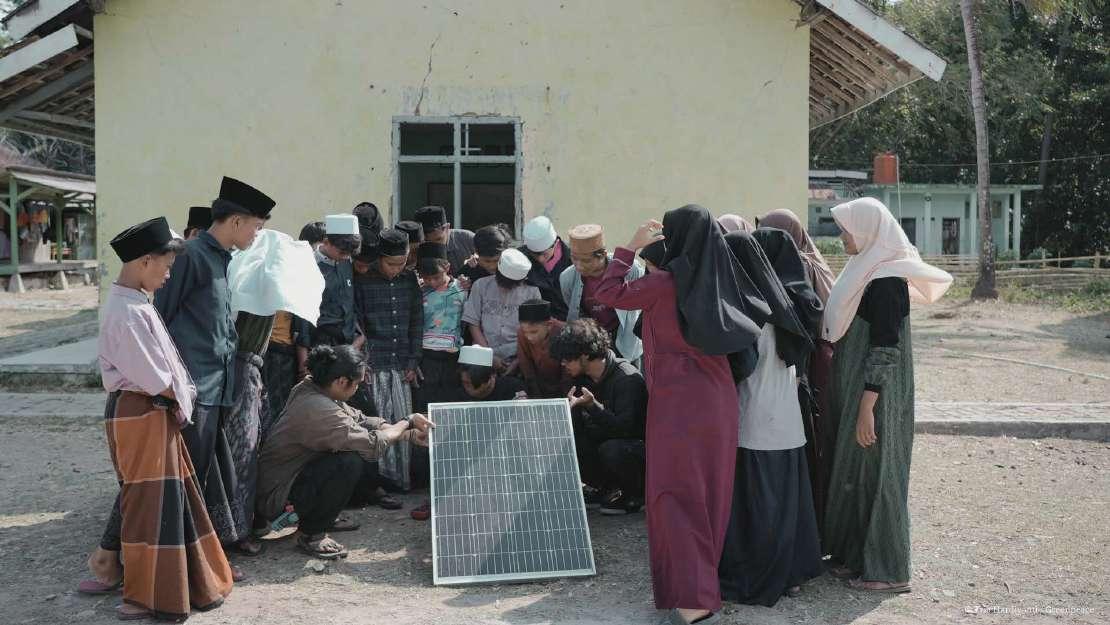
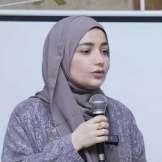
Nouhad Awwad,
Ummah for Earth’s Campaigner and Global Outreach Coordinator
The Ummah for Earth alliance has made significant progress in mobilising the Muslim community around climate action. The alliance has raised awareness about the importance of climate action and highlighted the potential for Muslims to contribute to finding solutions to the impact of global climate change. Ummah for Earth has provided a combination of practical environmental knowledge and an Islamic values perspective. Looking ahead, the alliance will continue its work with a particular focus on the role of Islamic finance in sustainable development around the world. We will look at the importance of educating Imams on climate issues making them leaders and mobilisers of environmental action in Muslim communities worldwide.

Partnership with Abu Dhabi University
ALTERNATIVE FUTURES


1 ceremony
2 award winners
70+ academic submissions
200+ participated in crowdsourcing the vision
Greenpeace MENA’s Alternative Futures campaign is a collaborative endeavour to inspire policymakers and business leaders to take notice and adopt transformative actions. In an increasingly polarised world, one dominant economic model prevails, fixated on exacerbating inequalities, fostering injustice, and exploiting both nature and people. This economic system prioritises profit over the well-being of individuals and the environment.
The responsibility for change falls on all of us, from governments and the business community to civil society, youth, and NGOs. A concerted effort is essential if we are to make inclusive progress towards climate action. Leveraging the region's expertise and knowledge to explore alternative economic routes is key to achieving sustainability. Being a pioneer in this regard is not just about caring for the environment, it is also about recognising the urgent need for a paradigm shift that will guarantee justice for all societies.
Our vision for an alternative economic model encompasses elements such as green recovery, re-evaluation of harmful fossil fuel subsidies, and prioritising citizen well-being through improved air quality and green employment opportunities. We have the studies, data, and drive to demonstrate the viability of sustainable economic models and to facilitate the transition to renewable energy.


A fusion of art, academia, and engagement has provided a holistic approach to policy discussions for a transition to a more sustainable future.
In collaboration with the Arab Forum for Alternatives (AFA), we established a virtual forum fostering discourse on environmental and climate justice. This initiative engaged a diverse audience consisting of over 7,500 participants through round-table discussions, webinars, training workshops, and capacity-building sessions, this initiative engaged a diverse audience.
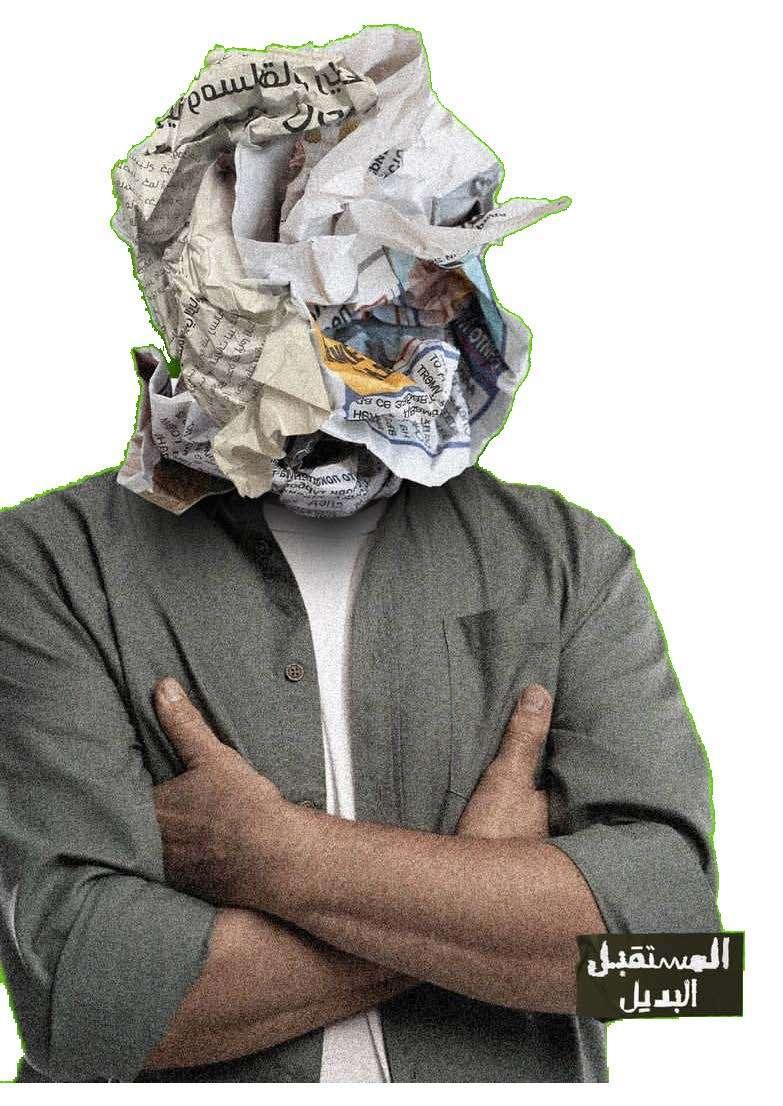
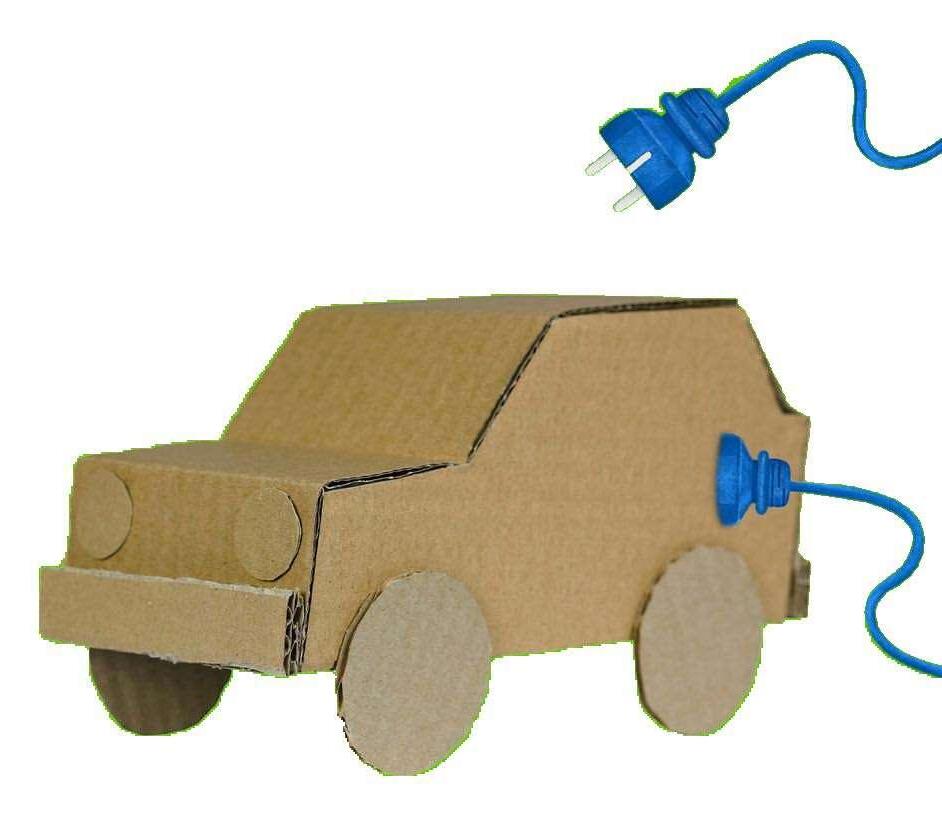
Our Work in the UAE
Academic
Partnership: Leading up to COP28 in Dubai, we highlighted the concept of alternative futures by partnering with Abu Dhabi University to organise an academic paper competition that attracted over 70 submissions exploring the transformative prospects of the energy sector and the economy. The winning entries, chosen for their alternative approaches to prioritising human prosperity and well-being, were recognised at an award ceremony that took place during COP28 as part of the International Conference on Advancing Sustainable Futures (ICASF) in Dubai. This successful collaboration with academia and government officials lays the groundwork for future partnerships and policy work.
Artivism: Greenpeace MENA harnessed the power of the arts to elevate the visibility of climate change concerns. Our crowdsourcing vision initiative drew over 500 submissions, which we then turned into AI-generated artworks for display in key Dubai venues.
We held the Visions of the Future exhibition at the main COP28 venue. The artworks envisioned an alternative future for the UAE through collaboration between young people and artists using AI and photography.
The Alternative Future was an immersive reality exhibition hosted in the Sustainable City by our local partner in the UAE, Greener Screen. Using stunningly beautiful projected visuals, this exhibition immersed viewers in an alternative world, helping us imagine a different way of living.
This multi-faceted approach embodied the essence of the Alternative Futures campaign, signifying our commitment to catalyse meaningful change and envision a sustainable and just future.
YOUTH AND COMMUNITY
The power of community
Coming from a region where over half the population is under 30 years of age, we at Greenpeace MENA recognise that empowering and collaborating with young people is not just a choice, it is a necessity if we are to forge a brighter future for our planet. It is the younger generation that bears the brunt of the consequences of the climate crisis, whether in terms of suffering health effects, relocating to find employment, or dealing with resource scarcity and the conflicts caused by climate change.
We acknowledge that the older generation's efforts have fallen short, and it is the youth who will shoulder the full weight of this global challenge.
Greenpeace MENA sees youth as the torchbearers of change, driving progress towards a sustainable and just future.
Climate justice demands a radical change in mindset, and this means empowering young people to play a pivotal role in shaping decisions about our climate's future - a powerful grassroots movement that can hold governments and corporations accountable for their actions on climate change.
The global youth climate movement has spearheaded the fight against climate change, compelling leaders to take more ambitious action. The youth have earned a crucial seat at the table, reshaping civic engagement, policy, and the very foundations of our political systems in a more progressive direction.

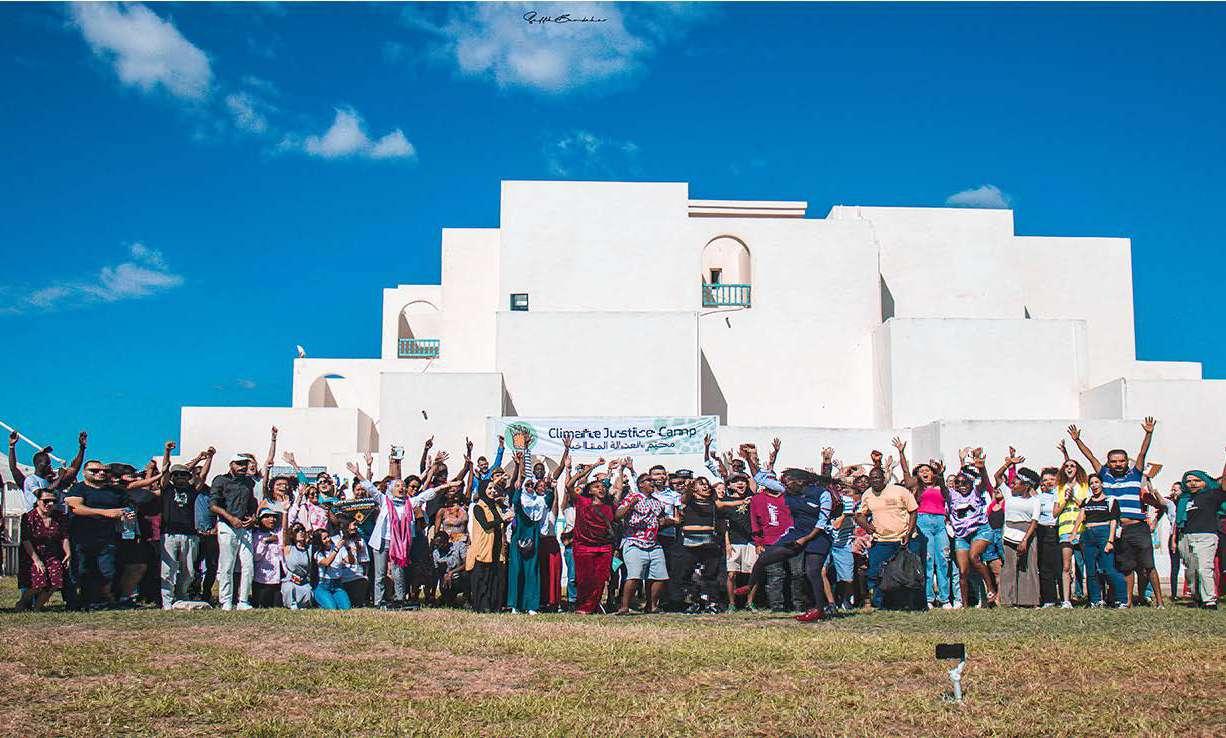
In the face of the formidable challenges posed by climate change, Greenpeace MENA stands at the forefront of empowering youth and communities to lead the drive towards creating positive environmental change. Over the last few years, we have worked to build the movement through various platforms, targeted support, events, and initiatives:
● SAWT open campaigning platform
● Ummah for Earth’s Green Initiatives training programme
● Climate Justice Camps in Tunisia and Lebanon
● United for Climate Justice Ship Tour
● Youth delegations at COP27 and COP28
● Workshops and training sessions for local organisations
Our region is one of the most impacted on Earth, and now bears the weight of drought, floods, and hunger. To rectify this, we must unite people across borders, cultures, languages, and generations.
Building a movement can only happen through the sharing of personal stories and lived experiences, uniting the world through the enduring strength of people power. Together, we possess the power to rewrite the narrative of climate action, forging a world where environmental well-being and social justice are intertwined.
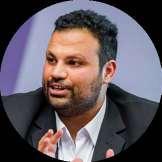
Amjad Bany Issa
Amjad Bany Issa is a passionate climate champion from Jordan, one of the world’s most water-scarce countries. He attended COP28 in Dubai to advocate for better adaptation finance to help climate-vulnerable communities reduce the harm they suffer from climate disaster. In this role, Amjad drew on his own lived experience of how drought and desertification forced Bedouin communities to abandon their lives of nomadic herding and agriculture and instead move to a settled city life. For decades, his family worked in agriculture and sheep farming: his father’s side were farmers from the northern part of Jordan and his mother’s were Bedouin from the south. Amjad saw first-hand how his family had to sell their land to make the move to the big cities where they had to change their whole way of living. It is this experience that ignited the spark of climate justice inside him. Amjad organised the Jordan Youth Climate Summit that created intergenerational dialogue between the Jordanian Minister of Environment and young climate champions as well as the MENA Youth Climate Negotiators program that increased meaningful youth participation in global climate talks. Amjad has also been supporting refugees as they integrate into host communities, helping to renovate Al-Hijaz Train Station in Amman to provide them with job opportunities growing their own produce using hydroponics, and serving it up in traditional recipes in the restaurant to the visitors and guests.

CLIMATE JUSTICE CAMP


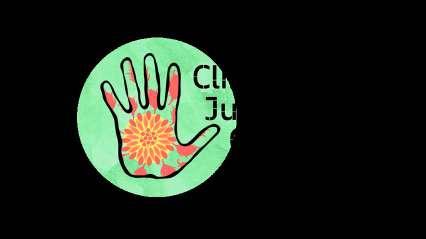
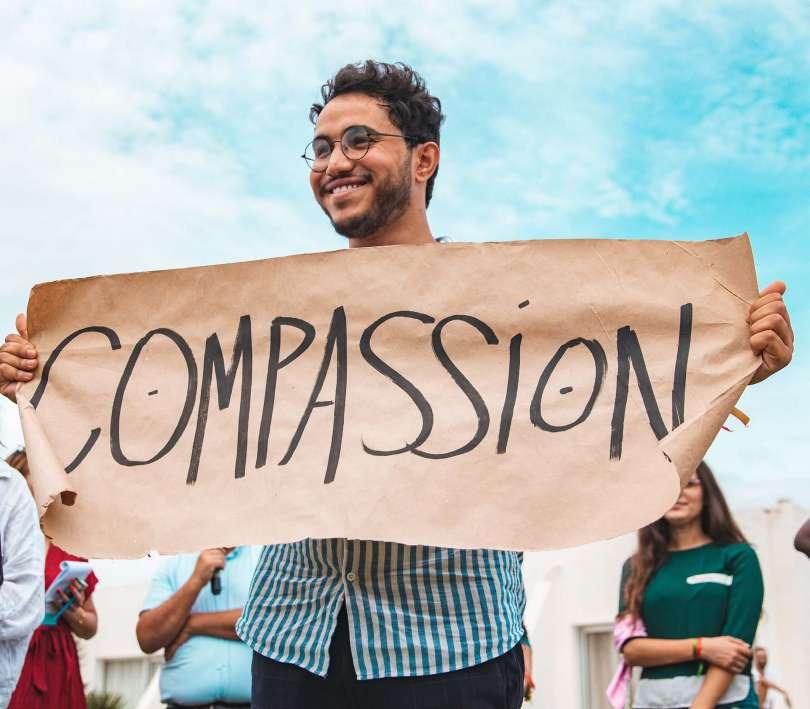

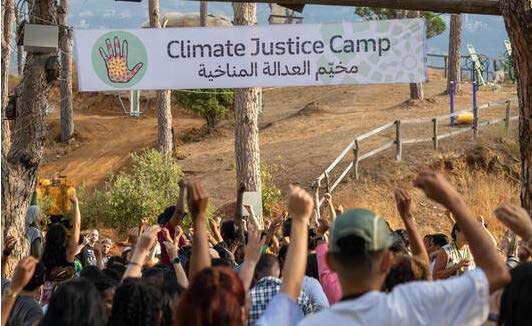
Climate justice demands the active involvement of young people in shaping climate decision-making. This is why Greenpeace MENA collaborated with over 40 other organisations and local groups to organize two transformative Climate Justice Camps in Tunisia and Lebanon. These celebratory events bridged the resource gaps that hinder young individuals in the Global South from effectively presenting climate justice as a truly global issue. In a united front, young allies came together in solidarity, advocating for global action to address the challenges faced by communities residing in the world's most impacted climate regions.
The first ever such camp to be held in the MENA region took place in 2022 in Nabeul, Tunisia, and was followed by an even larger camp in 2023 in a quiet village in Lebanon which hosted more than 450 participants from almost 100 countries across the Middle East, North Africa, Sub-Saharan Africa, Latin America, the Caribbean, South East Asia, and the Pacific.
During the week-long camps, young mobilisers, organisers, and advocates living on the frontline of climate disaster gathered to build effective strategies. Over six dynamic days, our camp attendees immersed themselves in more than 150 interactive workshops, sharing stories and experiences, and tirelessly networking to prepare for COP27, COP28, and beyond.
These Climate Justice Camps served as a powerful platform for voices from the Global South to tell their stories through the lens of justice. These events fostered a sense of community and solidarity and increased opportunities for grassroots climate groups in the MENA region to cultivate cross-border relationships, networks, and alliances within the Global South climate movement.
More than just finding common ground, the event was about recognising the cooperation needed to drive real systemic change. As a united community, knowledge, resources, and ideas were shared, paving the way for lasting progress. These connections extended beyond these camps, with young climate champions working together to maximise their impact in the ongoing fight for climate justice

Kenzie Azmi
Strong youth participation is the linchpin of planetary protection and the foundation for a more sustainable future for all. Our mission at Greenpeace MENA is to amplify young people’s voices to ensure that their perspectives resonate within the negotiation halls and reverberate globally. Most importantly, we provide a platform for voices from the Global South to tell their stories through the lens of justice. Embedding the voices of young people in events such as COP28 is not merely a symbolic gesture - it is a strategic partnership that will shape a more ambitious outcome.
THE UNITED FOR CLIMATE JUSTICE SHIP TOUR

4 events
3 ports/locations
3 Influencers participating
5 Young climate leaders on board
20k People who answered the climate Justice survey
Greenpeace MENA's “United for Climate Justice” Ship Tour was a historic and transformative journey emphasizing the urgent need to address climate injustice, specifically in the MENA region, and prioritise it on the COP27 agenda. The tour aimed to raise awareness about the devastating impacts of the climate crisis and advocate for bold solutions, amplifying the voices of regional youth demanding climate justice.
The tour brought together youth climate advocates, scientists, and influencers from across the region, underscoring Greenpeace MENA's commitment to connecting with local organizations and initiatives. Sailing through Egyptian waters, the ship made stops in various cities and ports, showcasing incredible resilience and hosting impactful activities.
Key activities included a Climate Justice Roundtable in Alexandria, a Flotilla Welcome, a two-day open boat event and Green Festival in collaboration with ten Egyptian environmental organizations and small businesses, and a regional climate impact report. This report was accompanied by a powerful documentary series that shared personal community stories behind the facts and figures, and an underwater photo op with Red Sea diver Faisal Khalaf that highlighted the impacts of climate change on the Red Sea corals.
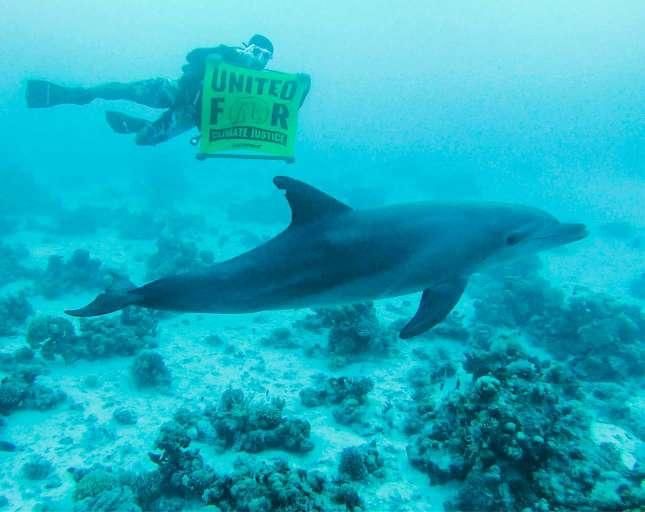
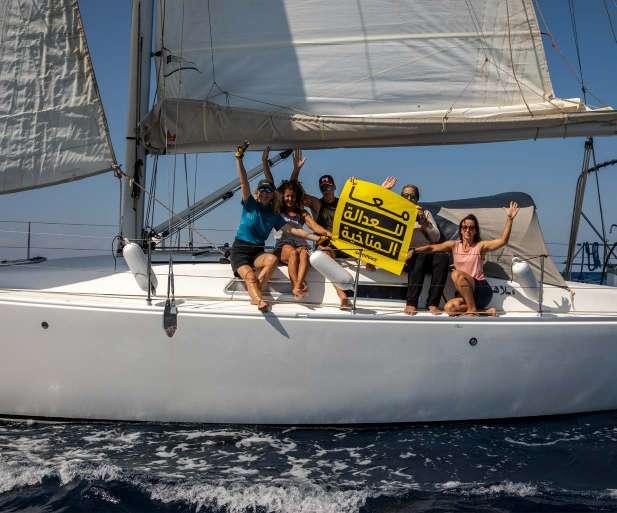
In Alexandria, the roundtable event presented climate justice issues from diverse regional voices, emphasizing how climate change disproportionately affects marginalized communities, deepening poverty and reducing resilience. Through this roundtable, Greenpeace MENA aimed at deepening the audience's understanding of climate justice ahead of COP27, and it resulted in 4 of the top most performing posts in 2022!
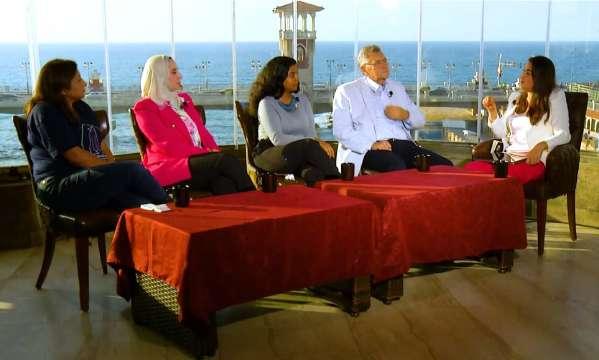

The Rainbow Warrior was welcomed by the local sailing and diving community in Hurghada through a flotilla of wind-powered boats setting an atmosphere of excitement and hope for the future. The ship was also met by endurance swimmer and ocean advocate Lewis Pugh, who pioneered swimming across the Red Sea in the lead up to COP27, urging all nations to drastically cut their emissions, to tackle the climate crisis and protect the world’s oceans .In Hurghada, a two-day Green Market and Open Boat event showcased products from ten environmental organizations and eco-friendly small businesses, emphasizing the role of frontline marginalized communities.
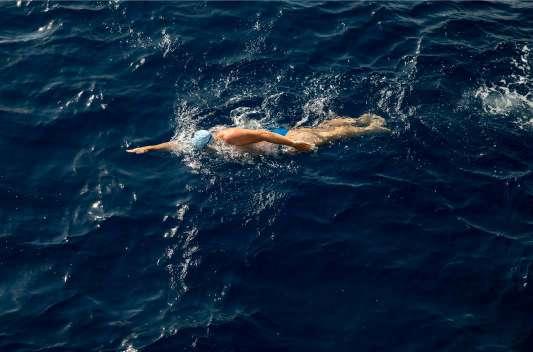
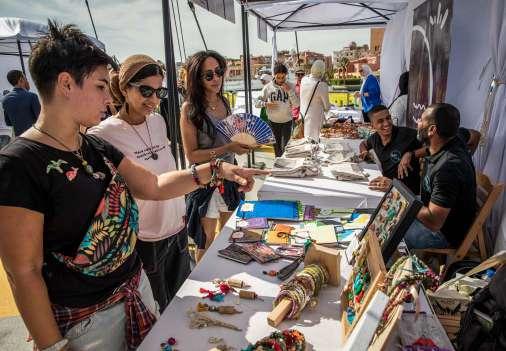
An underwater stunt was also performed in the Red Sea by Egyptian diver Faisal Khalaf to highlight the vulnerability of coral reefs under threat from climate change as well as other human impacts.
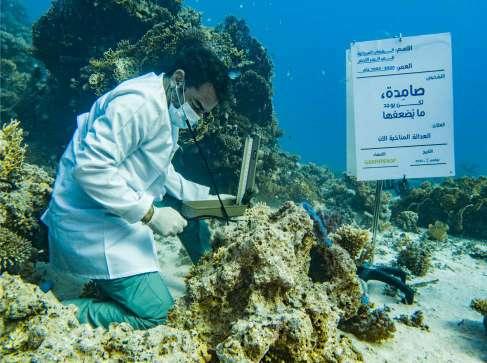
The tour also coincided with the publication of a Greenpeace report, “Living on the Edge: The Implications of Climate Change for Six Countries in the Middle East North Africa Region,” and a series of documentaries detailing the impact of climate change on agriculture and ecosystems in Algeria, Egypt, Lebanon, Morocco, Tunisia, and the UAE. This launch grasped the attention of regional and international media outlets.
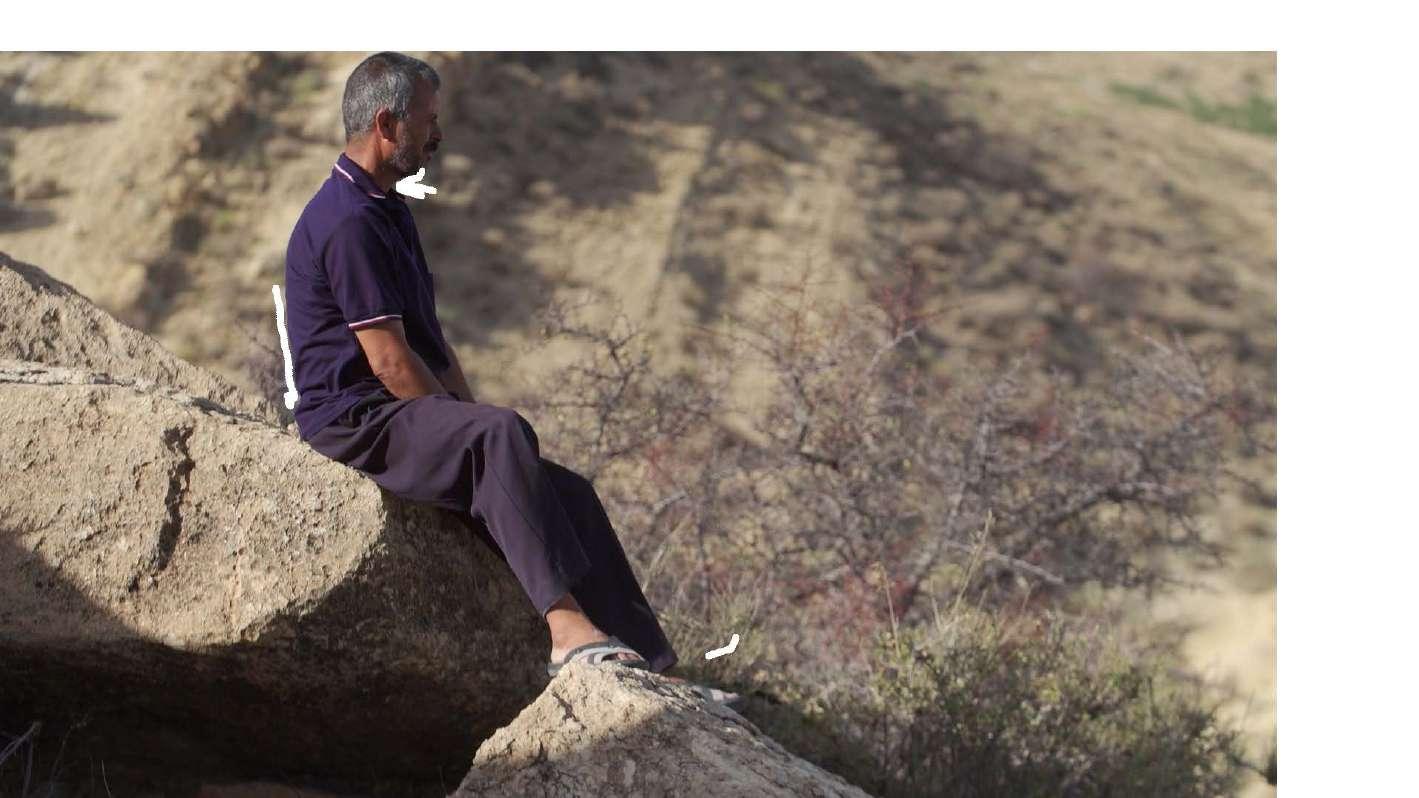
Another impactful activity was the artivism project involving 400 young campaigners and artist El Seed, who created a banner representing Global South youth sentiment. This banner was displayed during the Climate Justice Climate Camp 2022 in Tunisia, as a Kite banner onboard the ship and at COP27 in Sharm El-Sheikh. This banner connected these three moments and traveled from Tunisia through the red sea to Sharm El Sheikh delivering the youth message for the world leaders at COP27. El Seed pictures with the young climate champions holding the banner met with huge success on Social Media!
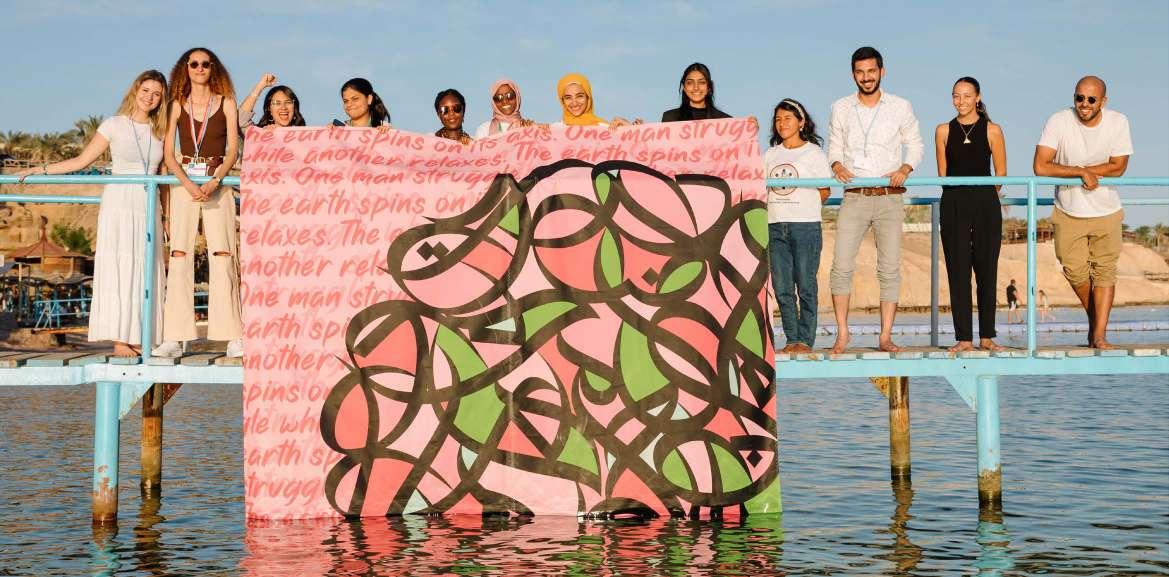
“
LIVING ON THE EDGE
”
Throughout the tour, six climate advocates and key influencers, including Ayisha El Siddiqa who was named as one of Time Magazine’s women of the year in 2023 , were hosted onboard, ensuring their demands for climate justice were highlighted. The tour significantly raised awareness about the need for climate action and empowered youth climate advocates and marginalized communities. It inspired young people across the region to engage in the climate justice movement and pushed for more ambitious climate action from policymakers and corporations.
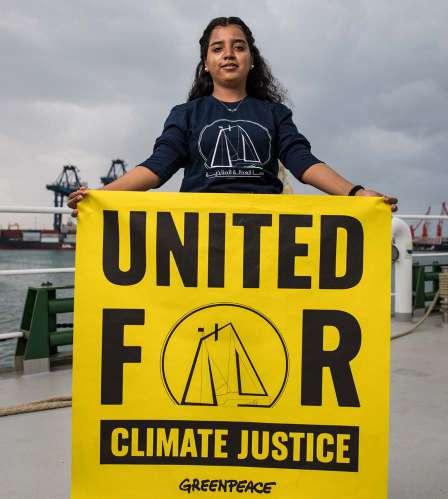

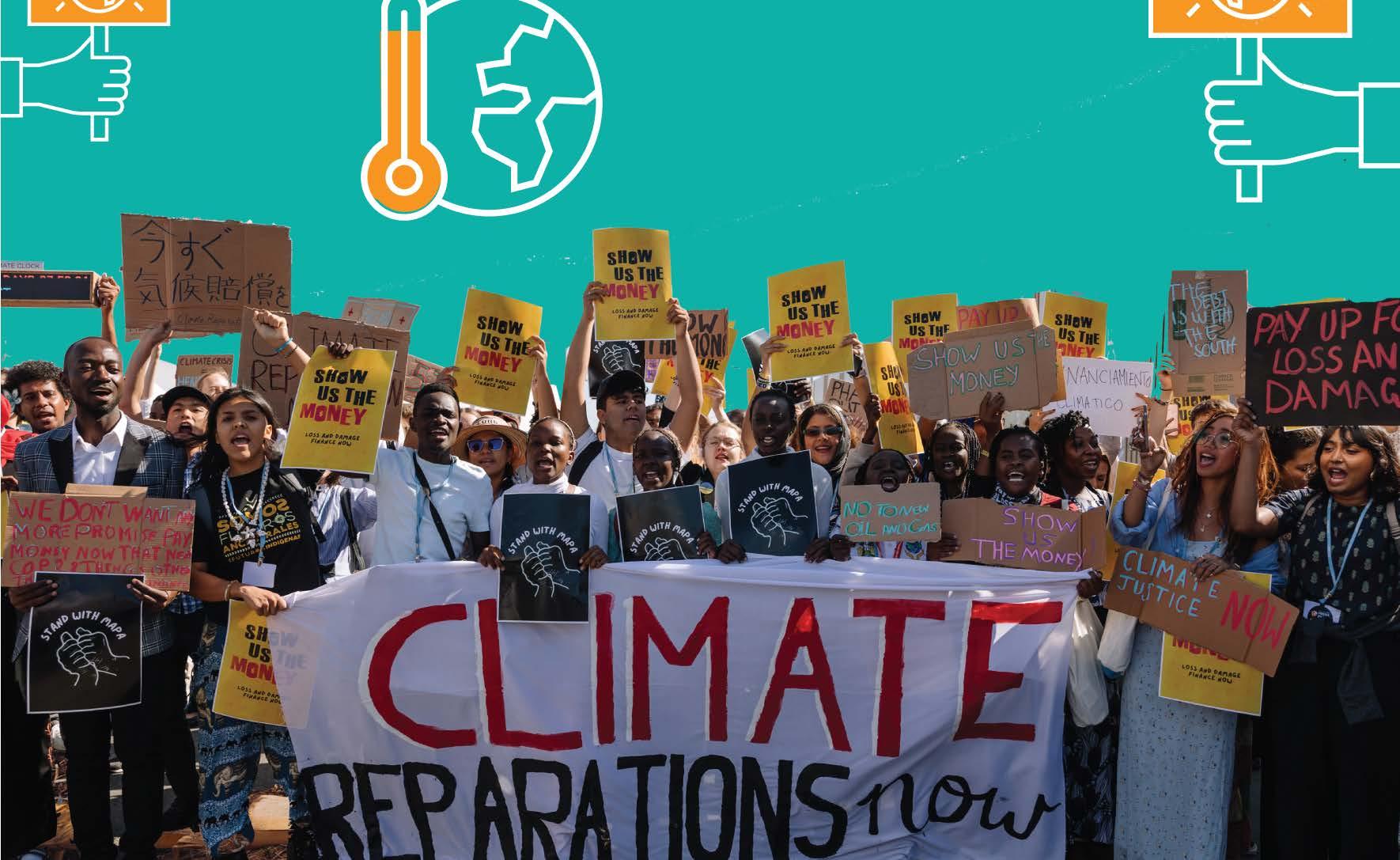
60,000 SIGNATURES
SAWT is our community-led digital open campaigning platform that provides the space for youth, environmentalists, and communities to mobilise and find solutions for environmental issues in their cities, neighbourhoods, schools, or countries.
SAWT is the first platform dedicated to launching environmental campaigns in the MENA region. The ease with which anyone can follow a few simple steps to create an account and launch an online petition means it has become a hub, so far hosting 62 campaigns from 12 countries and gathering almost 60,000 individual signatures.

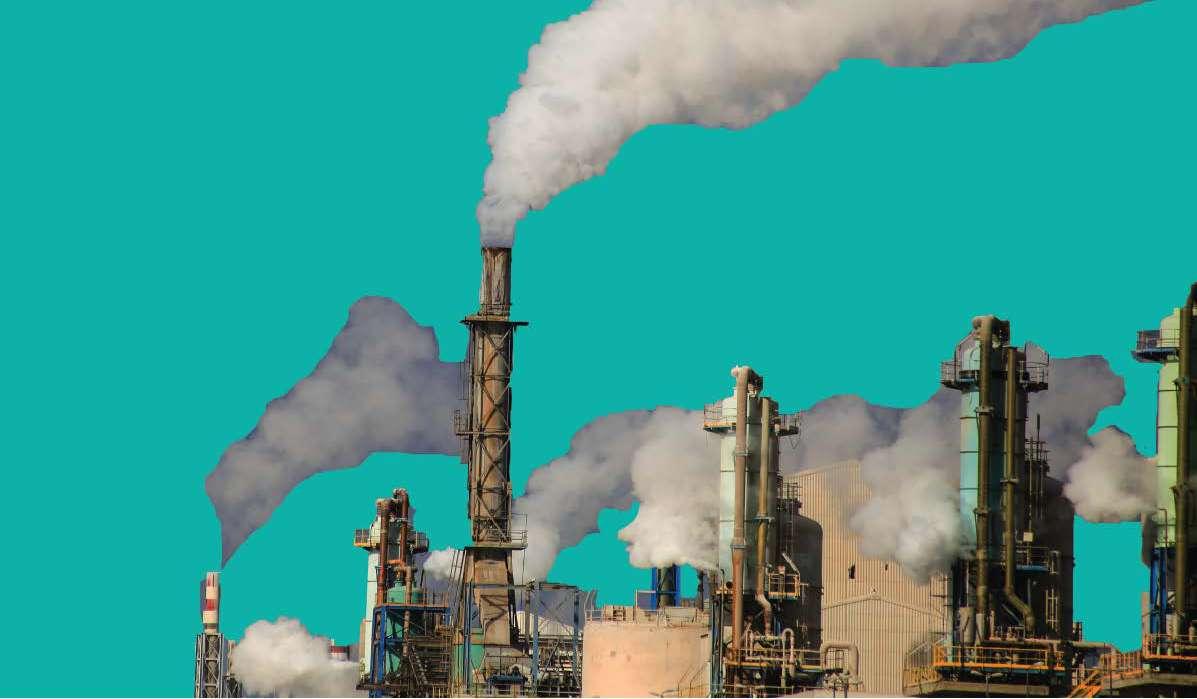
SAWT connects environmentalists and campaigners, building and nurturing a network of allies that have become key players in the environmental and climate movement.
SAWT provides a focal point that allows organisers to collectively plan and discuss issues, in order to connect different campaigns and learn from their shared experiences. The platform is also working to help groups organise events, stay in direct communication with their campaign supporters, and make their voices heard by decision-makers.
YOUTH FOR CLIMATE TUNISIA
“We used SAWT to launch a petition calling for climate education as part of our advocacy for Tunisian youth's right to environmental and climate education to help them make informed decisions and encourage people to change their attitudes and behaviour. Our digital campaign with Tunisian screen star, Hend Sabry, reached more than 300,000 people and attracted the support of several environmental associations.
“Education is a critical agent in addressing the issue of climate change. It empowers all people, but especially motivates young people who can be learn about the impact of global warming and how to adapt to climate change.”
SUPPORTING COMMUNITIES AGAINST AIR POLLUTION
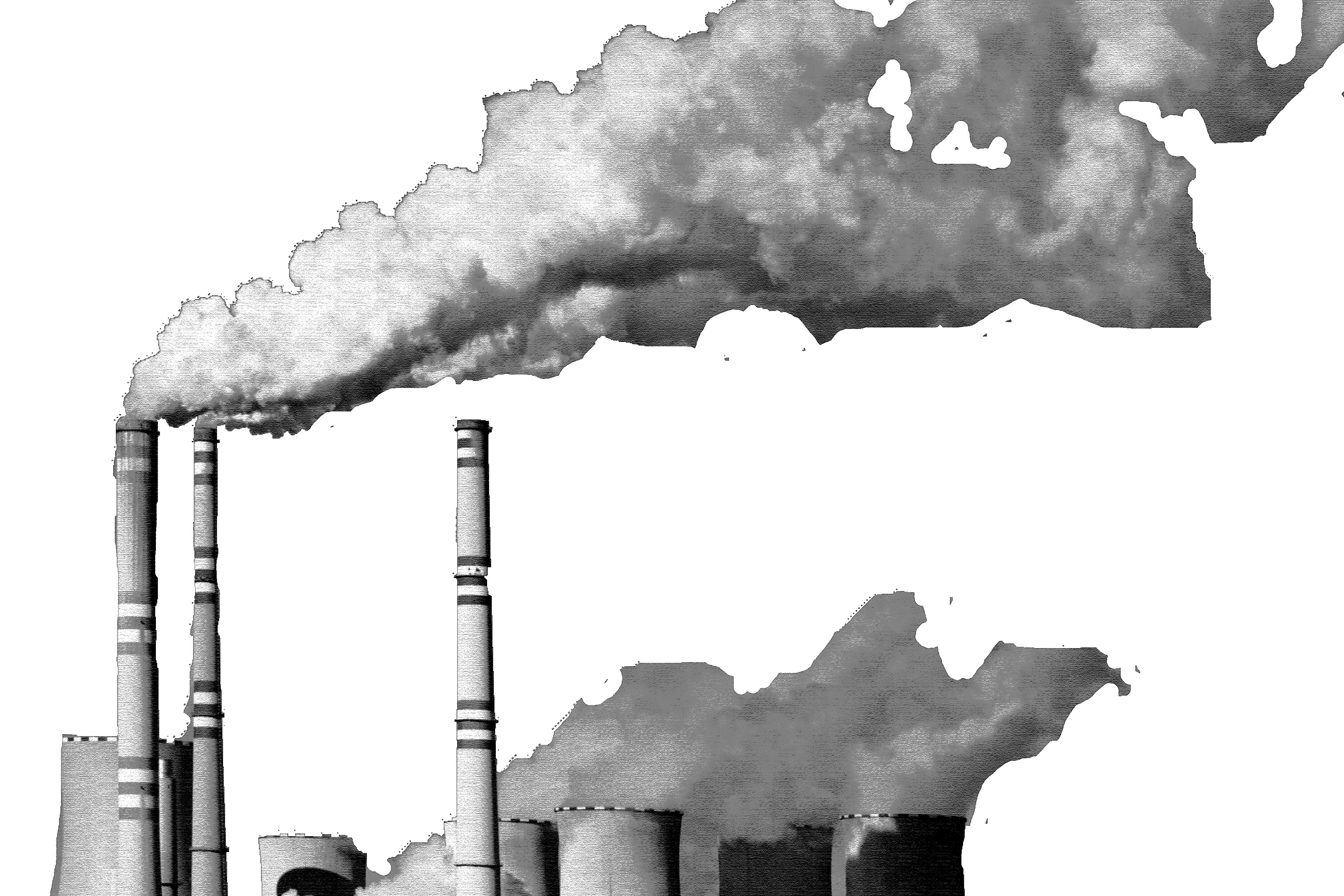
1 report released “Dangerous NO2 air pollution in Middle Eastern and North African cities has increased back to pre-Covid levels” 45 media pickups for the press release
116 report downloads
3,834 new signatures on petition 738 new signatures on SAWT petitions
1 air quality monitor delivered to frontline community in Kenitra
3 communities’ campaigns supported
Air pollution is a major global problem that affects the health and well-being of people and the planet. According to a recent Greenpeace report, air pollution from burning fossil fuels is leading to approximately
4.5 MILLION premature deaths worldwide every year.
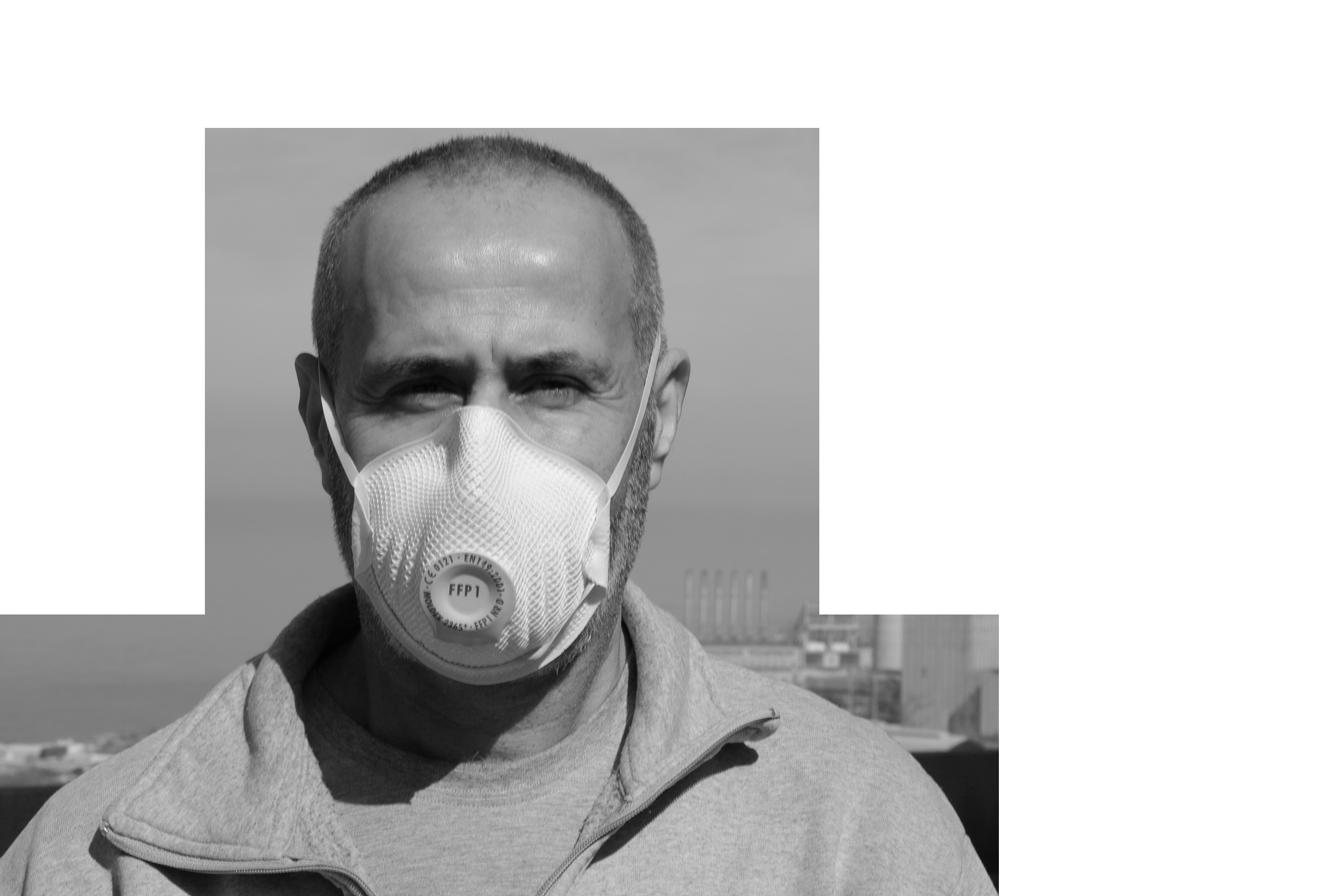
Greenpeace MENA works to raise awareness of the impacts of air pollution on public health and the environment, and we support communities and decision-makers to take action on this urgent issue.
A report revealing how dangerous NO2 air pollution in middle eastern and north african cities has increased back to pre-covid levels.
We are actively engaging with affected communities and helping them in their campaigns on air pollution, supporting them to monitor and document the impact of specific polluting sources, raise awareness, and push for solutions. We have been able to support these communities with expertise enabling them to substantiate their arguments with scientific evidence that directly supported their advocacy efforts. These local groups often find themselves ignored by decision-makers and far from the centre of political and media attention, leaving them subject to powerful interests such as multinational corporations and politicians.
In Morocco and Tunisia, we have been supporting local groups in Kenitra and Gabes with their campaigns against air pollution and its sources. We have supported them by amplifying their work, providing regional exposure to help mobilise more support for their campaigns. We also provided them with air quality monitors and made the data accessible to the public in order to develop the proper solutions for each case.
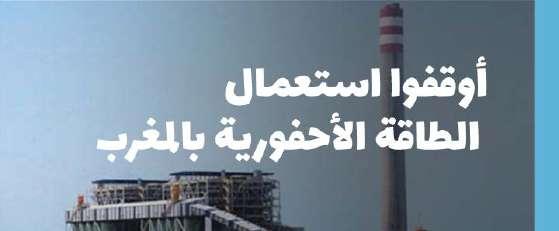
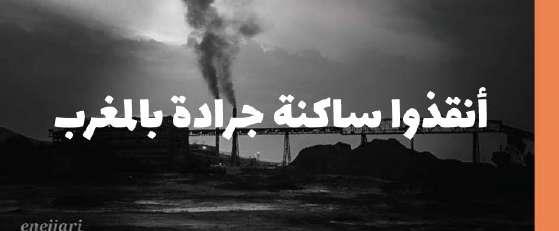

In Lebanon, we supported local partners in the mountain villages of Kfar Hazir and Fiaa to carry out independent scientific monitoring of the air pollution and publish the results. As expected, the study found high levels of particulate matter that is known to cause cardiovascular and respiratory disease, and cancer - confirming what local people have been saying for years: that emission rates were much too high, and that this was having a serious impact on human health. We published a scientific report on the findings jointly with the University of Balamand and the EarthWill organisation. By organising a press conference to launch and disseminate the findings, we were able to help these local groups engage with national media and social media to show the polluting companies that they were not just speaking to a few individuals but to a community backed by local and international civil society organisations and universities.
Through this work, Greenpeace MENA has been able to help these and other communities to organise and develop their own campaigns, contributing our expertise, skills, tools, and platforms such as SAWT, to effectively challenge the status quo.
Quote from a partner from Koura…
Fares Nassif, Head of EarthWill
"Environmental corruption lies in quarries and crushers, and we will defend our health and environment in the courts. GP MENA helped us to prove in a scientific way what we have been saying and what a number of doctors and specialists had been saying about the high emission levels that have had a great impact on human health. This data showed that the people in the mountain villages of Kfar Hazir and Fiaa have been living with illegal levels of pollution that breach international guidelines and Lebanese law - yet there seems to be nothing they can do about it.
These results are alarming because the high concentration of PM2.5 means the particles can get deep into the lungs, and some may even get into the bloodstream. Exposure to such particles can affect both the lungs and the heart and have serious short-term and long-term health effects.”
MEDIA HIGHLIGHTS
At Greenpeace MENA, we recognise the importance of working with the media to increase the reach and impact of our message. Over these past few years, we have developed relationships with some of the most prominent and influential broadcast media outlets across the region and beyond which have led to significant coverage for our campaigns. Our coverage included in-depth interviews, investigative reports, and opinion pieces that have shed light on the challenges we face as a society and the solutions we need to pursue.



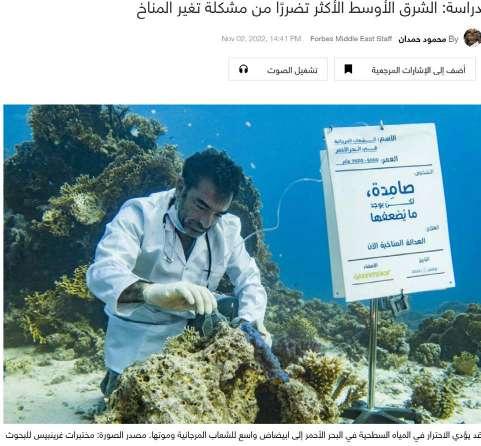


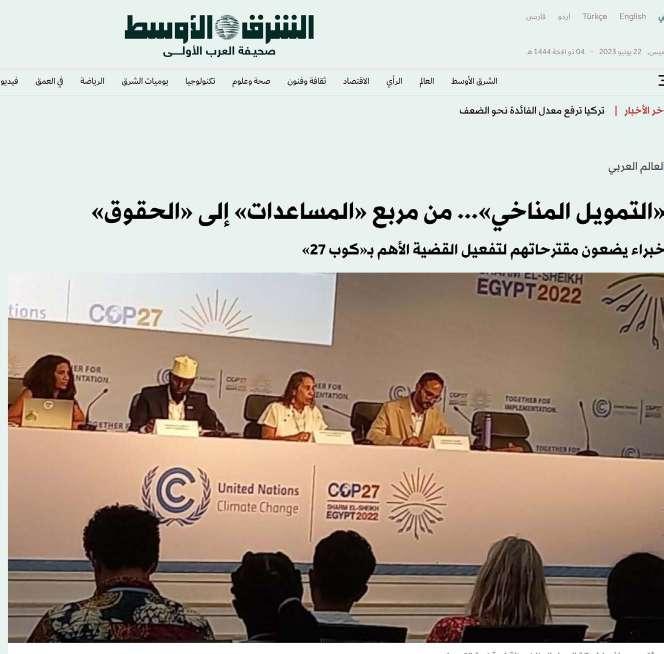

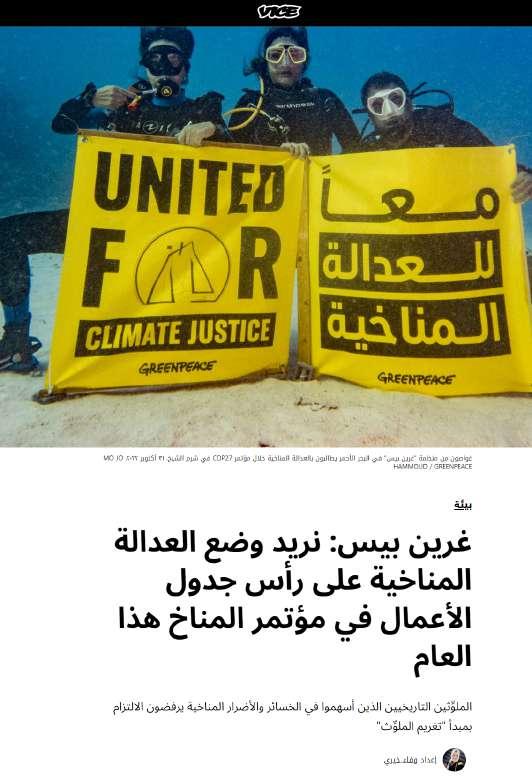


FUNDING OUR MISSION
Our work is supported by a movement of individuals, trusts and foundations across the globe which believes in our vision of conserving the diversity and richness of our region’s natural treasures and communities and supports our calls for change. We would like to thank each and every supporter who makes our work possible.
At Greenpeace MENA, we are honoured that our work is funded entirely by donations given to us by passionate individuals from all over the world who care about the planet and want to help us effect change, and by grants from independent foundations that share our values. We do not accept donations from governments nor companies in order to maintain our independence and make sure that we can always speak truth to power. While we continue to safeguard our communities from the environmental threats in our region, every contribution is driven by our ability to make a meaningful impact. The evolution of our fundraising team over the past few years is another aspect of our dedication to this cause.
Our region faces numerous environmental challenges, but this only hardens our resolve to cultivate innovative local solutions, and foster a peaceful, sustainable, and just future. It is through your support that we have achieved milestones and furthered our goals. Your commitment enables us to spearhead campaigns, champion solutions, and safeguard communities, supporting our journey as we navigate the environmental crisis together.. Together, let us shape this world for the generations to come.


As we reflect on the past years, I am filled with a deep sense of gratitude to our donors and partners who have enabled us to make significant strides towards our cause and mission. Because of this generosity, our allies continue to be a driving force behind our work and meaningfully impact the lives of those we serve. The urgency of addressing the short and long-term impact of the region’s climate crisis cannot be overstated. Individuals and philanthropic players in the Arab region must begin investing more effectively to achieve climate justice. As we move forward, we remain devoted to making a difference in our communities and beyond. We look forward to your continued support and partnership in the years ahead.

Major Giving & Foundations
This period was of great importance for the fundraising efforts of Greenpeace in MENA. Our inspiring campaigns have attracted multiple grants from international foundations, fulfilling our ambitious fundraising strategy.
Thanks to our loyal donors and the generous foundations that support our work, we were able to further our mission of advocating for equitable solutions that prioritise the needs and voices of those who are most affected by the climate disaster. Prime examples of this have been the two Climate Justice Camps in Tunisia and Lebanon respectively, which brought together more than 800 organisers and advocates from more than 120 countries sharing knowledge of local campaigning in the Global South, building relationships, developing skills, and co-creating strategies and tactics. This support is instrumental in our ability to continue our work, but it also sends a powerful message that the voices and needs of marginalized communities in the MENA region are valued and prioritised.
Another impactful project that impressed our donors was nurturing strong youth representation at the COP which advocated for and was representative of youth voices from the Global South and particularly the MENA region. These young climate leaders attended the camps and joined Global South youth delegations at both COP27 and COP28. They also took part in lobbying, delivering public addresses, holding events, featuring in media interviews, and strategising during the conferences.

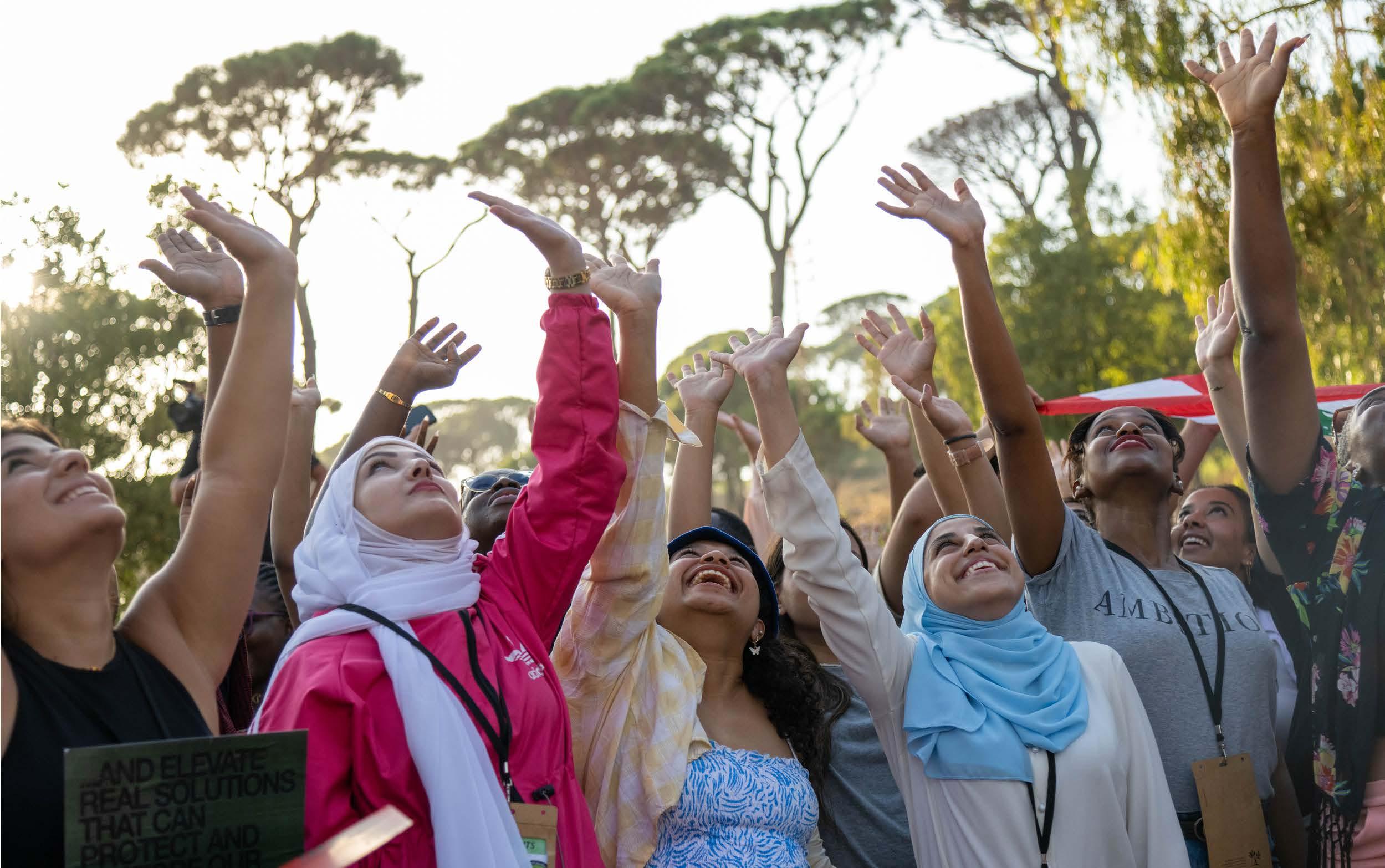
Our Supporters
We would like to thank the Climate Emergency Collaboration Group (CECG) and Ford Foundation for their confidence in our work, their generous contributions, and their commitment in both 2022 and 2023. We also extend our gratitude to the European Climate Foundation & Pooled fund on International Energy (PIE) that generously supported us in 2023. All our partners were keen to collaboratively support our impactful work in the MENA region to create a greener, and more sustainable future for our communities.
Digital Fundraising
Marking the inaugural anniversary year of our donation page, this pivotal period played a vital role in shaping our campaigns and establishing our strategy. In an era where the urgency for environmental preservation cannot be overstated, our organisation has embarked on a fundraising initiative to support Greenpeace’s campaigns and maximise their potential. This decision stems from a deep-seated recognition of the critical challenges facing our region and the pivotal role that Greenpeace MENA plays in addressing them.
Greenpeace MENA has long been at the forefront of the global environmental movement, advocating for sustainable and just solutions to our planet's most pressing issues. Our campaigns against deforestation, plastic pollution, and climate change, among others, have not only raised awareness but have also spurred tangible, impactful action across the globe, especially in the MENA region.
The challenges facing our environment are vast, but together, we have the power to make a difference. Through collective support, we can help fuel critical environmental campaigns closer to our goal of a sustainable and just world for all.
Together, we can turn the tide on environmental degradation and chart a course towards a brighter, greener future. Scan the code and take action now


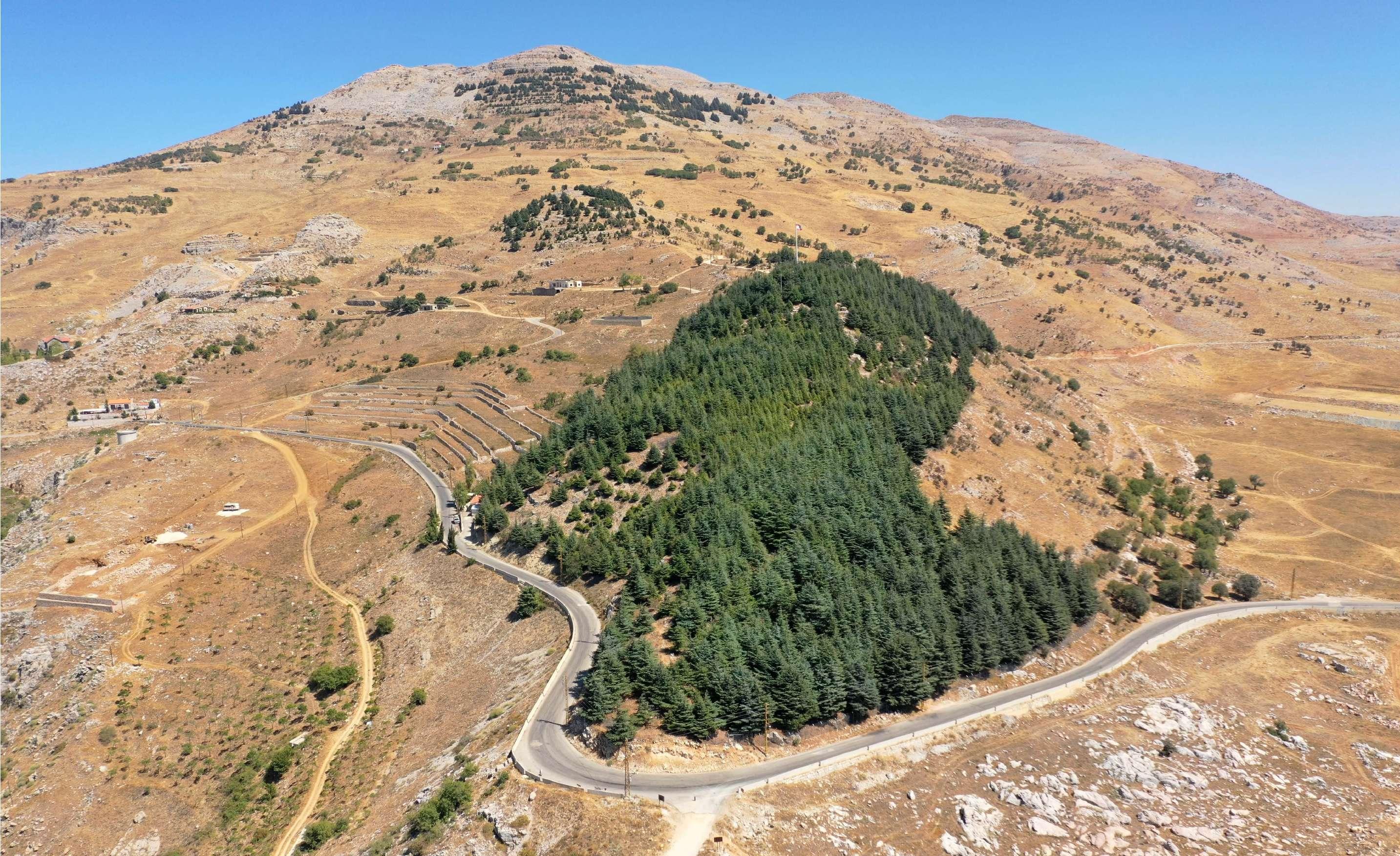
Our campaign, which won both a prestigious Gold and Silver award at the Dubai Lynx in 2023, is a powerful call to action in the face of an alarming environmental crisis. The state of life on Earth, as we know it, is deteriorating to alarming extremes, with devastating consequences for our world and our local communities. This recognition from Dubai Lynx is a testament to the urgency of our message and the impactful way in which we've communicated it.
As the world grapples with terrible seasons of forest fires, droughts, and extreme weather occurrences, it is becoming increasingly clear that our planet is in peril. The Lebanese cedars, a symbol of strength and resilience, are now facing an existential threat due to the climate crisis. Rising temperatures, prolonged drought conditions, and wildfires are pushing these majestic trees to the brink of extinction.
Our digital fundraising development
Over the past years, our organization has achieved significant advancements in our digital fundraising efforts. A key initiative has been the implementation of a new and improved donation page, which has greatly streamlined our donation process. Furthermore, we are now capable of creating dynamic pages that offer a comprehensive donation journey for both visitors and petition signers, allowing us to better align with our campaigns and foster an engaging experience that encourages donations and support.
People and Culture: GROWTH DEVELOPMENT AND DIVERSIFICATION


Greenpeace MENA has seen tremendous growth in team size, skill sets, backgrounds, and geographic spread over these past five years. We are now a bigger team, and our diversity of experiences, cultures, and identities makes us stronger and more effective in our work to protect the environment in our region and achieve our strategic objectives.
Greenpeace’s culture is about serious work in a fun environment. Our team is built on an ethos of respect, trust, support, and strong camaraderie, offering a great work environment for all. Retaining great people is as important as recruiting them and we are committed to attracting top talent with strong expertise and competencies who share our values and believe in our mission. We have constant opportunities for learning and development, with a wide range of training programmes around campaigning, leadership, project and line management, and more.
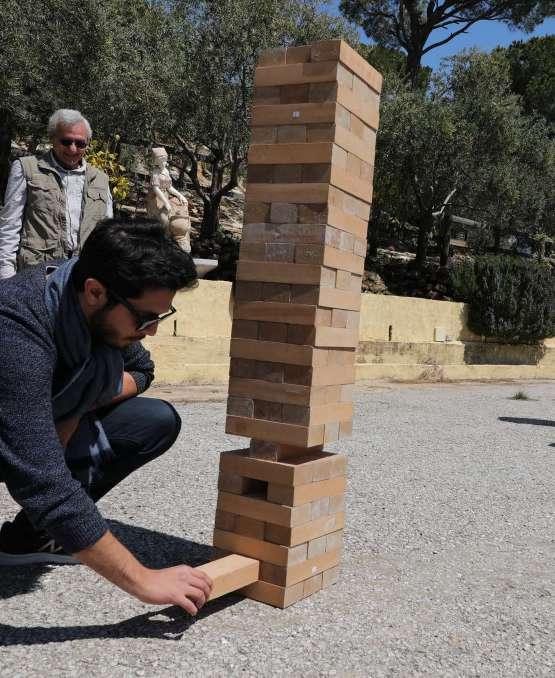
The Greenpeace MENA team is always excited to take on new challenges and opportunities. We have celebrated successes and stood firm during times of crisis, prioritising the physical, mental, and emotional well-being of our people above all else. When the pandemic presented its challenges, our team members remained connected and supportive of each otherinviting us to their homes and lives in new ways.

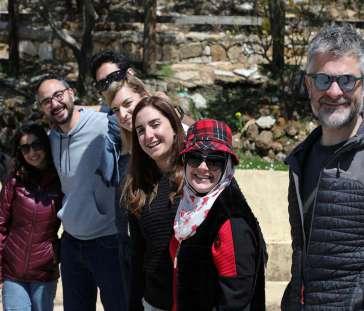
We look forward to unlocking new opportunities for growth and impact in the years to come by continuing to leverage innovative solutions and prioritizing the donor experience.
Supervisory Board and Organisational Structure
Greenpeace MENA is committed to maintaining the highest standards of good governance and financial management, as well as upholding the integrity of our organisation. Our Supervisory Board, which consists of five members in addition to the Executive Director, plays a crucial role in ensuring adherence to internationally accepted governance and financial management standards.
The board is responsible for approving our budget and audited accounts, as well as appointing our Executive Director. Our board members serve as volunteers and are selected based on their expertise and demonstrated commitment to Greenpeace's mission and values. Through the diligent work of our Supervisory Board, we remain a transparent and accountable organisation that strives to make a positive impact in the world.

The Executive Director
Ghiwa Nakat has spearheaded Greenpeace’s growth and expansion in the Middle East and North Africa and has built a passionate and diverse team that represents the breadth and diversity of this region. After studying agricultural engineering at the American University of Beirut, Ghiwa obtained an MBA at the Université Paris Dauphine. As a business leader, she spent two decades providing inspiration, motivation, and encouragement to help organisations develop their ambitious visions and make them a reality. As the first woman agronomist in her company, she took a fresh approach to building close relationships with growers helping them to build their ambition and innovation. Her experience as a long-time environmentalist has taken her to the frontline of climate change, seeing the most vulnerable communities bear the brunt of the climate crisis and pollution.
The Supervisory Board of Directors

Mohammed ElKhateeb – Board Co-Chair
Mohammed ElKhateeb holds a Master of Science degree in Environmental Governance from the University of Freiburg, Germany. Mohammed focuses his research on sustainable mobility, environmental policy, and urban resilience. He authors The SUbMonitor, a blog that delves into sustainable mobility, policy, and planning in cities globally, with an emphasis on public transportation.

Karim Ben Mustapha – Board Co-Chair

A marine biologist and radical ecologist, Karim Ben Mustapha specialises in marine sciences and is a professional diver. A father of three and grandfather of two, he led Greenpeace's first campaign in an Arab and African country in 1991 aimed at protecting the seagrass marine habitat off the Gulf of Hammamet in Tunisia. In 2011, he co-founded Alternatives NGO, advocating for the inclusion of the right to sustainable development in Tunisia's 2014 constitution. Karim has contributed to various strategic foresight studies and campaigns to address pressing environmental issues in the region.

With nearly 20 years of experience in accounting and finance across both the corporate and NGO sectors, Hadi Kaassamani began volunteering at Greenpeace Lebanon in 1996 before becoming the Finance Manager of Greenpeace Mediterranean from 2000 to 2007. A professional speleologist, he has served on the board of the Speleo Club du Liban (SCL) - one of the oldest caving associations in the Middle East. Hadi is an active member of several local Lebanese NGOs and has also served on the board of The Lebanese Association for Democratic Elections (LADE).
Mario Stephan is the Head of Philanthropy Diversification and Impact for Médecins Sans Frontières (MSF) in Geneva, Switzerland. Mario has held regional positions in Africa and the MENA region, living and working in the Democratic Republic of the Congo, Kenya, Afghanistan, Somalia, Egypt, and the UAE. He has served as Board Secretary for MSF Belgium and as chairman of the humanitarian safety NGO, INSO. Fluent in Arabic, Mario holds a Master’s in Management and Business Administration and is accredited by the Chartered Institute of Environmental Health and the European Mentoring and Coaching Council. He also serves as a faculty member at Universidad Catolica de Murcia on their Sustainable Humanitarian Action Master’s programme.

Asmae Bouslamti - Board member
With almost two decades in nonprofit development and a background in International Economic Relations, Asmae Bouslamti has made significant contributions to gender equality and environmental sustainability. She has been with Oxfam for 12 years and is currently the organisation’s North Africa Gender Justice Program & Policy Lead, having previously acted as Country Representative for Oxfam in Morocco. She has influenced civil society agendas and public policies in her work for UN Women where she helped facilitate women's access to legal services. Asmae also holds an MSc in Didactics of Social Sciences and Communication and has studied the NeuroCognitive and behavioural approach at the Institute of NeuroCognitivism in Paris.
OUR FINANCES
Greenpeace MENA prioritises transparency and financial accountability.
Through careful financial management and strategic resource allocation, Greenpeace MENA remains dedicated to financial sustainability and operational effectiveness. Despite the cost of living crisis, we have maintained our income levels by supplementing grants from Greenpeace International with consistent growth in fundraising income. This growth has been driven by digital fundraising efforts on our website and other platforms, as well as contributions from major donors and foundations supporting specific projects. In 2023, we achieved a decrease in total expenditure, even with increased investment in our fundraising department, by managing our campaigns and support expenses effectively.
LOOKING FORWARD:
WHERE DO WE GO FROM HERE
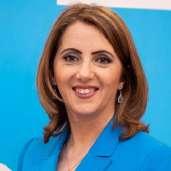
Nancy Afram
Engagement Director at Greenpeace MENA
Greenpeace MENA remains steadfast in its commitment to addressing the urgent challenges presented by the climate crisis in the region. Guided by the principles of justice, equity and inclusivity, we are dedicated to ensuring that our campaigns and initiatives authentically represent the diverse voices within our communities and speak the language of our audiences, empowering them to take action themselves as change makers for a sustainable future.

We will forge strong alliances with like-minded organisations and individuals who share our dedication to safeguarding our planet. Integrating Climate Justice and Alternative Futures as core values in our campaigns, we aim to drive impactful change and expand upon our previous successes, such as our well-being economy webinars, the prestigious Alternative Futures award, Climate Justice Camps, and our advocacy at the COP summits.
Through compelling storytelling, we will amplify the voices of marginalised frontline communities and youth, showcasing their resilience and shedding light on the urgent need for climate justice. As a solution-oriented organisation, we will champion locally-driven initiatives and promote existing and prospective solutions tailored to our unique context, culture, and traditions.

Our mission remains focused on making polluters pay and advocating for a greener, fairer world, engaging with our audiences and influencing decision-makers alike. We will continue to champion the call for fair climate finance from the historical polluters in the Global North, ensuring that they bear responsibility for the climate crisis they have caused.
We will challenge traditional notions of economic growth, exposing the power imbalances and neo-colonial tendencies that still exist between the Global South and North, while spotlighting exploitative and extractivist practices that perpetuate economic vulnerabilities and hinder true progress. By highlighting alternative approaches, we aim to make the concept of a well-being economy more accessible and appealing to a general audience.

www.greenpeace.org/mena
twitter.com/GreenpeaceAR
To volunteer with us and for general enquiries: info.arabic@greenpeace.org
Fundraising inquiries: frgpmena@greenpeace.org facebook.com/GreenpeaceAR instagram.com/greenpeaceAR
Lebanon: +961 1 612500 Ext: 3930
Netherlands: +31 (06) 45712741
